#there are many more examples of grief in the show that i can think of rn but these are the ones that really stick out to me
Text
thinking about the portrayal of grief in andor
thinking about cassian traveling to morlana one to search for his sister. his determination to find her even though deep down (i believe) he knows it's futile. even though he knows it's reckless to mention kenari and his connection to it. there's a dogged insistence to continue looking for her - a desperation to his actions that he may not be fully aware of because it would be so much harder to come to terms with her death than it is to put himself in danger.
thinking about a young Cassian getting on that crashed ship after one of his people is killed. his anger and frustration and grief spilling out as he begins destroying the thing that brought death to his life. he's confused and distraught and he lashes out physically.
thinking about bix chained to a wall as she's forced to stare at timm's body, unable to go to him - to hold him, forced to be at a distance from him, forced to grieve for him at the tail end of being angry with him for his actions.
thinking about cassian choosing 'clem' as his cover name when he joins the aldhani mission. he picks it on instinct even though he knows that a cover name isn't supposed to have a connection to your personal life. he can't help but reach for the comfort of his father's name when pushed into an uncertain situation.
thinking about lieutenant gorn aiding the rebel alliance. an imperial officer whose love was killed by the empire that he serves. he grieves his love and he grieves for the aldhani people. he carries the weight of his own past actions that played a part in the tragedies that have befallen the aldhani people and he becomes vengeful, knowing and not caring that his actions will likely lead to his death. he only cares about hurting the empire on his way down.
thinking about vel shouting a broken 'no' when taramyn dies in front of her. she never gets to go to him and is forced to leave his body there to finish the mission. she has to harden herself to the loss of the people around her because everyone is always at risk of dying. vel is always grieving. she grieves for her friends even when they are still alive and standing in front of her because she knows that death isn't a matter of if but when.
thinking about cassian and vel watching nemik be crushed by the weight of imperial credits they just stole. vel is forced to decide between the surety of mission success and potentially saving nemik - sweet, wonderful nemik who has more hope and faith than anyone else. Cassian making the decision for her to find the doctor because he told nemik he would sleep when it was over but not like this.
thinking about cassian sitting outside while the doctor tries to save nemik, unable to be at his side, to watch, but unwilling to abandon him even though the job is over.
thinking about vel staying by nemik's side until his death, being forced to listen to and carry his dying wish. her insistence in carrying it out. she holds out his manifesto to cassian and won't back down until he takes it even when there are other concerning things going on.
thinking about cassian immediately refusing nemik's manifesto. he doesn't want a reminder. he does not want to carry the weight of someone's dying wish with him, someone who was so bright and full of life and hope in the short time that he knew him. when vel insists, he takes it. and we see him carry it with him for the rest of the show. he carries that manifesto even when he runs away, seeking an escape. he returns for that manifesto after escaping prison. he listens to that manifesto the night before breaking bix out and it gives him purpose. it gives him comfort. it reminds him of a man who he only knew for a short time but who impacted him deeply. and even though cassian does not carry the physical manifesto again, he carries nemik's words with him for the rest of his life.
thinking about cassian returning to ferrix, his home, and being reminded of clem's death as he walks through the streets avoiding imperial troopers. he is helpless against the onslaught of memories just as he was helpless to do anything but watch all those years ago.
thinking about maarva being unable to walk through the main square where clem was hung. she walks the long way around. until aldhani. aldhani gives her hope and she is able to walk somewhere she wasn't able to before and she is able to face that street and think of clem and she is able to smile.
thinking about all of the prisoners on narkina 5. they are forced to come to terms with the fact that they're already dead, dead men walking. they grieve for themselves. they grieve for those around them. they are pushed to desperation, and they turn that grief into defiance. they fight for their freedom because there is only one way out and they're already dead so what does it hurt to fight to live.
thinking about cassian learning about maarva's death. he is quiet. he is unmoored. he was coming back for her.
thinking about B2EMO not wanting to be alone. he just wants maarva.
thinking about ferrix's funeral traditions, about a community surrounded by grief. it's in the walls that house them. the people of ferrix are surrounded by the dead and their memories become their strength.
thinking about the portrayal of grief in andor and how it shows so many reactions and coping mechanisms and journeys of healing and acceptance along with those who can't find acceptance.
grief is a weight and andor shows us that there are so many ways to carry it.
#when i say i have many thoughts about this show I MEAN IT#there are many more examples of grief in the show that i can think of rn but these are the ones that really stick out to me#this part of the show really caught my attention and resonated with me#i recently lost someone very important to me and i have learned that there is no wrong way to grieve and grief can look so different#andor#andor series#cassian andor#star wars#thinkin thoughts#min says#min muses
315 notes
·
View notes
Note
what exactly is Aang's toxic masculinity that you're talking about? there are no examples of such behavior on his part in the show. he is not an ideal person, he is a child who sometimes behaved incorrectly, just like all the other children in the show (Katara, Toph, Sokka), and this is normal.
in addition, we see how he regrets some of his wrong actions and gets better, while Zuko does not regret his toxic behavior, doesn't apologize and doesn't face the consequences of his behavior (racist jokes about Aang, demands that Katara forgive him as if he has the right to her forgiveness, an attack on Aang to "teach him a lesson" and many other things).
Hi anon, thanks for the ask! This is a very good illustration of what I was talking about in this post when I mentioned that I feel toxic men are overlooked more often for appearing “nice” than they are for being conventionally attractive.
No examples of toxic behavior in the show? What do you call this then?
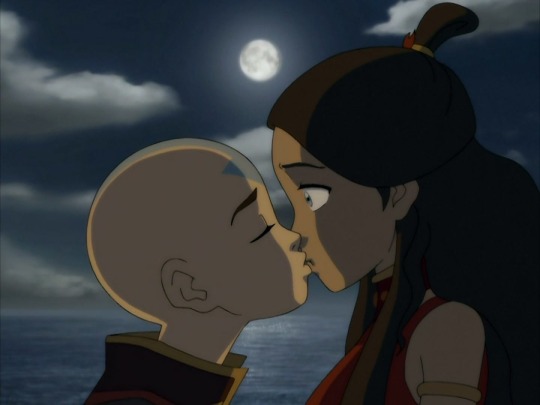
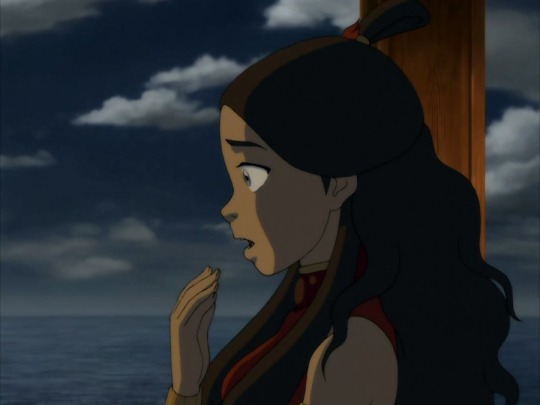
I know what I (and the law) call it:

But you see, he’s “nice” right? This is just a misbehaved child, as you put it? Yah, no. He knew better and still did it because he was possessive; this whole interaction started because he was jealous that an actress playing Katara was interested in men other than him. And the show proceeded to frame the situation in a way that made Aang sympathetic, despite being the aggressor and the one behaving irrationally. How much more “toxically masculine” can you get than that? But he put on a flower crown once so we’re supposed to think he’s a soft uwu feminine boi (even though he was absolutely enraged that a female actress played him).
I also find it very interesting that you describe Katara and Sokka as “children” while Zuko is omitted from that list despite being the same age. Are you admitting you agree he’s more mature, or are you admitting that you hold him to different standards?
But, anyways. You asked about toxic behavior on Aang’s part, which I’ll get further into now that the most egregious example is out of the way.
Let’s break down what you consider unforgivably toxic behavior on Zuko’s part and compare it to Aang’s behavior in similar situations.
1. “Racist” jokes
I’m guessing this is made with reference to the “Air Temple preschool” comment. How exactly is this racist? In context, Aang is the one trying to force his beliefs on others, and Zuko makes this comment to a) tell him to back off and b) point out that Aang is, in fact, a child who doesn’t have any business telling Katara how to feel.
This point is particularly interesting to me, because it implies that the simple fact that Zuko doesn’t agree with the philosophy of Aang’s culture makes him racist. By this logic, Aang is also racist against Katara’s culture, because he clearly disagrees with her philosophy and is openly telling her that his culture is morally virtuous over hers. And well. That’s even more believable considering Aang’s previous reactions to Water Tribe culture.
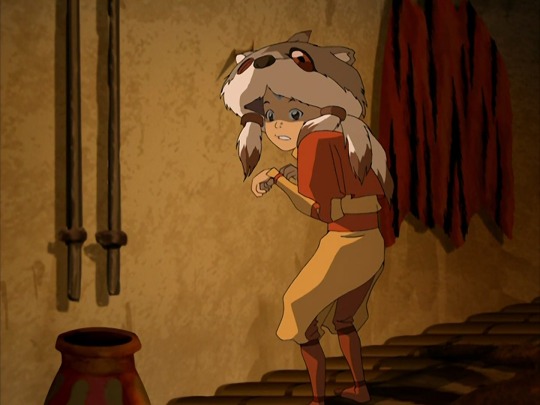
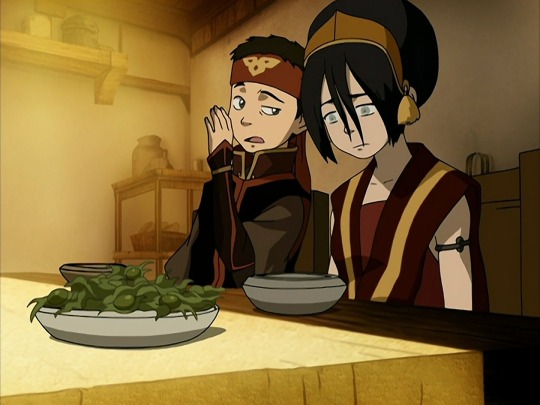
Ah, yes. Playing with a cultural artifact like it’s a toy because you were upset about not being the center of attention for once, and telling everyone how disgusting you think cultural food is, what great ways to show the supposed love of your life how much you respect her culture!
I know your response to this point would be something like “uwu but he’s a kid he didn’t knowww” ok well. The same logic can be applied to any alleged “racism” on Zuko’s part.
2. “Demanding” forgiveness
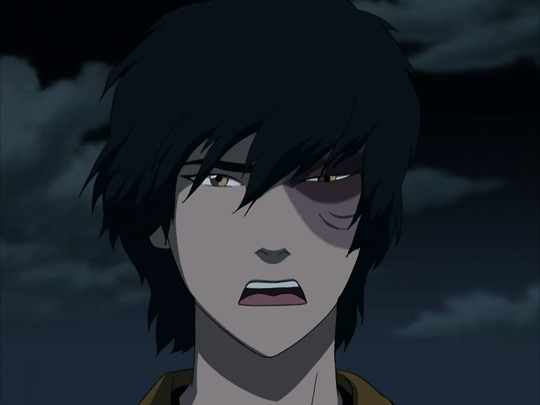
Zuko: What can I do to make it up to you?
Ah, yes. How demanding of him. He’s clearly so self-centered and only thinking about his own values and agenda here.
It’s not like he…
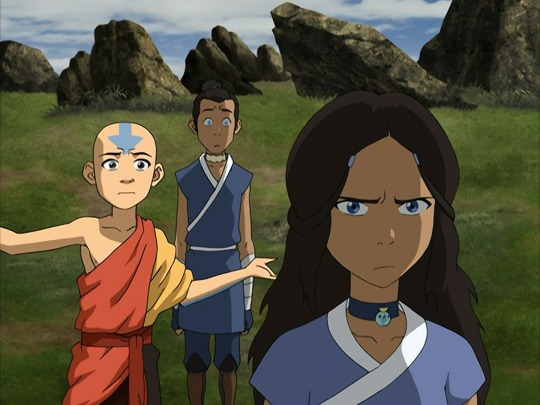
…told his friend how she’s allowed to process her grief and try to impose his own morals…

…or demanded to know if his crush liked him back, wouldn’t accept “no” as an answer, and forced a kiss on her…
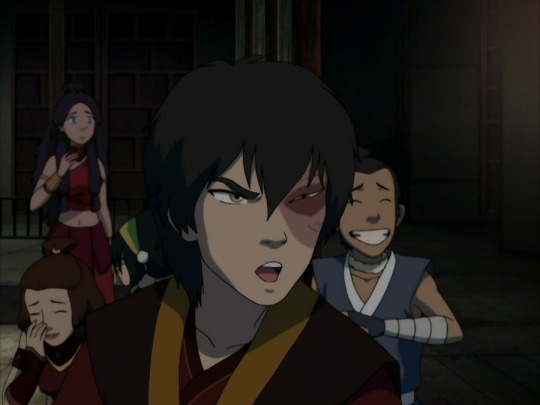
…or told an abuse victim he was wrong to want to kill his abusive father for trying to commit a genocide…
…oh, um. Yeah. Sorry, but after actually watching the show it’s very clear to me which character doesn’t seem to regret or see the flaws in any of his actions at the end of the show, which is when all of these examples took place.
3. Training in the finale
“Attacking Aang to teach him a lesson” … wow, that’s a very dishonest way of phrasing that situation. I’m impressed, I have to say. I’ve seen lots of dumb takes from Aang stans over the years but this is a new one.
Well, luckily I actually watched the scene in context, so my reaction was the same as all the other characters’ reactions in canon when they learned the context behind this “attack”:
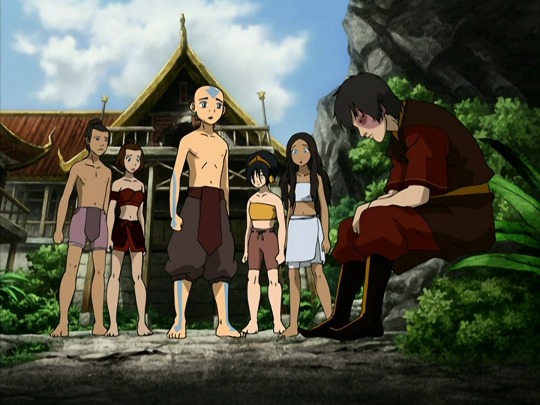
They agree with him. Yeah. Obviously, when nobody is taking training seriously when the world is about to literally go up in flames, you might need to do something to get their attention.
“But it was dangerous!” you might argue. Well… yeah. When magic and bending is in the equation, training in the Avatar universe has been shown to be somewhat dangerous at times. As an example, from this very same episode, Toph very nearly smashed Sokka with a giant flaming rock. That was way closer to hurting someone than Zuko was in this incident. If you’re going to fault characters for making their training exercises too dangerous, I guess Toph is mega cancelled.
Now back to Aang. What was his reaction in this situation? How did he react to the end of the world being days away? He ran away with absolutely no plan. Just like he did at the very beginning of the show.
I mean, think about it. This is a critical flaw (and toxic trait) in Aang that is literally never addressed, because he starts and ends the show the exact same way: he’s faced with a problem, he runs away from it, then he’s saved by an in-universe equivalent of an Act of God. Wowie, such great character development. Not fixing your core flaw and having a mythical plot device materialize into existence to solve your problems for you. Aang’s whole arc is a big blah, because the writing fails to address any of his flaws or have him meaningfully question any of his values.
Meanwhile, Zuko has consistently been a fan favorite because he’s the opposite. His flaws are meaningfully addressed, he does admit he’s wrong and fix his flaws, and his character shows a critically acclaimed change throughout the show. His arc is written so well that despite being a cartoon character, Zuko is widely considered the poster child for a good redemption arc across all forms of media.
So anyways, miss me with the double standards… there is a reason why Zuko is the fan favorite, and it’s not just his abs 🔥
656 notes
·
View notes
Note
Didn’t he try to get his gay employee to marry a woman lol? I love him, he was a sweet, kind man, but also old and a lifelong Republican.
Most American voters register with one of the two major political parties. I don't know why Fred Rogers registered as a Republican, but what Republicans stood for in the 1950's & 1960's is very different from how we think of that party today. According to his wife, Fred was "very independent in the way he voted."
————————————————————
It is true that Fred Rogers encouraged a gay employee to marry a woman. I think it's an unfortunate part of his history, but I think it's helpful to fill in more of the story.
Francois Clemmons was hired by Fred Rogers to be the first Black person to have a recurring role on children’s television. He would be Officer Clemmons on the show Mister Rogers' Neighborhood, and he kept that roll for 25 years.
In his memoir, Officer Clemmons, Franc shares that one day in 1968, he was called into Fred’s office at the studio.
“Franc, we’ve come to love you here in the Neighborhood. You have talents and gifts that set you apart and above the crowd, and we want to ensure your place with us. Someone, we’re not able to say who, has informed us that you were seen at the local gay bar downtown with a buddy from school. Now I want you to know, Franc, that if you’re gay, it doesn’t matter to me at all. Whatever you say and do is fine with me, but if you’re going to be on the show, as an important member of the Neighborhood, you can’t be ‘out’ as gay. People must not know. … Many of the wrong people will get the worst idea, and we don’t want them thinking and talking about you like that. If those people put up enough fuss, then I couldn’t have you on the program. It’s not an issue for me. I don’t think you’re less of a person. I don’t think you’re immoral.”
Clemmons began to sob because he could only have the job only if he stayed in the closet.
If it had been known a gay man was a regular part of a children's show, it would've been cancelled. Remember, this is pre-Stonewall.
“You can have it all if you can keep that part of it out of the limelight. Have you ever thought of getting married? People do make some compromises in life.”
Francois Clemmons married a woman in 1968. In 1974 they divorced and Franc began living as an openly gay man.
Fred Rogers changed his advice, urging Clemmons to find a gay man he was happy with. He also stopped asking Clemmons to remain in the closet, and he warmly welcomed Clemmons' gay friends whenever they visited the television set. I've read that this change came from Fred getting to know and becoming friends with gay people.
—————————
Having a Black man as a police officer on the show was making a statement in support of Civil Rights. The most iconic encounter between Officer Clemmons and Mr. Rogers on the television show occurred in 1969.
At a time when many community pools were strictly segregated, Mr. Rogers invited Officer Clemmons to join him and cool his feet in a plastic wading pool. As Officer Clemmons was getting out of the pool, Mr. Rogers helped him dry his feet.
This exemplified the message that all people are equal and valued and loved
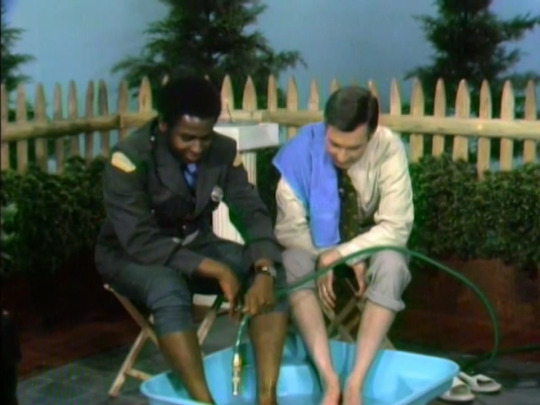
The core values of the television show were: Love your neighbor as yourself, be kind, say “I'm sorry,” smile, accept people and help them grow, be forgiving, see each day as a new chance to be happy, positive and kind. The show talked about grief, divorce, race issues and disability.
Fred Rogers' character regularly said, “there's no person in the whole world just like you” and “I like you just the way you are.” It was an example of radical acceptance.
In addition to Franc Clemmons, John Reardon is another openly gay man who regularly appeared on Mister Rogers' Neighborhood, so it seems Fred Rogers personally didn't have an issue with gay people, but having them be open on the show was not something possible at that time. I'm sad that an openly gay character never occurred on the show.
Fred Rogers shared that evangelicals would sometimes write to him asking him to condemn homosexuality, and he never would, instead saying he — and God — loved everyone just as they were. Since 1967, Fred and his wife worshipped at Pittsburgh’s Sixth Avenue Presbyterian Church which was a diverse, progressive church where women were equal, social justice was the theme, and since the 1960's has engaged in a ministry to gay people and was the first Presbyterian church to ordain gays & lesbians.
While he was not a public advocate for gay rights, his message of unconditional acceptance didn't exclude any genders, orientations or races.
382 notes
·
View notes
Text
we got another two years prob till link click season 3 so i'm gon talk about everything i love about this series thanks
human trafficking rep. holy shit. a more realistic approach to the mental trauma involved for all parties.
the VAs slapped, regardless of what sub/dub you pick, they all slayed
suicide awareness. so many shows shy away from this when trauma/etc are very real and suicide is often faced as an option. link click takes this and goes "hell no. live. FUXKING LIVE NO MATTER WHAT" and it's 11/10. you're loved. please. stay.
the bonds. not a lot of fiction anymore just shows GENUINE relationships. it's either abusive shit or fluffy shit -- neither are 'good' or realistic. but link click comes along and has functioning adult relationships that Still have issues and problems and arguments and disagreements bUT love is still present in those relationships bc they're healthy
it's also a reminder that genuine love / relationships aren't based on what you can give, etc. (as adults i think we forget this often and we feel we have to deserve a relationship; link click says f this)
a big theme of the story is making mistakes!!!!! so many fictional stories either 1) take the 'aw i messed up again:(' approach or 'my mc can do NOTHING incorrect or wrong ever' and they suck, lol. link click is a great balance of yes, we messed up, but we move forward.
link click also is a solid example of "yeah, sometimes life is shit! you try your best! it doesn't always matter!!!" but not in a "so d/e" way but in a "even so, still try, still love, because knowing you can't control shouldn't instill fear but bravery"
LING IS A POSITIVE FEMALE CHARACTER THAT DOESNT CONSTANTLY HAVE TO SHIT ON MEN TO BE IN THE STORY --
death and grief handled in a realistic way tbh
the occasional laugh and smile and just the humor is pure
the tension and intrigue is the best written and portrayed i've seen and i'll die on this hill sorry
the concept of time travel is popular, but i haven't found anything to tackle the emotional / MORAL consequences like link click has. "SHOULD you change the past? IS IT OK to change the past?" we've all seen "oh no we changed the past we must fix it!!!" but I've never seen "the past, the present, and the future are heartbreaking and gut-wrenching and stunning and precious and beautiful as they are" but HUMAN NATURE remains and our desires continue to be to remove the heartbreak and pain. is that morally wrong or not?
ANYWAY this will prob be part 1 of more but please lmk what you think lol
#link click#qiao ling#sgdlr#shiguang#shiguang daili ren#cheng xiaoshi#lu guang#bilibili comics#time agents#link click art#link click fanart#link click fanfic#link click theory
302 notes
·
View notes
Text
May we all aspire to show the kind of resiliency that Tolkien gives us in Éomer. He lost both of his parents as a child. His beloved cousin was murdered on a battlefield by soldiers of a former ally gone bad. He spent long months watching his adopted father slip into inexplicable decline and even turn against him, and he barely gets to celebrate that father’s restoration before he, too, is killed. Then Éomer finds himself thrust into the role of king though we’ve been told by Tolkien that he never had any ambition for power. He survives a horrifying battle by the skin of his teeth and spends a good deal of time thinking that his only sister and last remaining relative is dead. And when the battle and the war actually turn out well in the end, he still loses that sister when she marries a Gondorian and moves away from Rohan. AND YET, this man carries the royal name Éomer the Blessed.
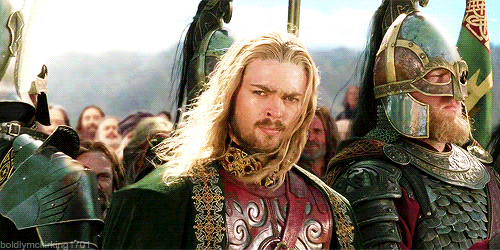
He survives all of this tragedy and sadness and pressure, and he doesn’t let it crush him. Each and every time, he picks himself up, finds new things to live for and keeps trying his damn best. Grief and fear are the price he pays to have love in his life, and he pays it happily. Yes, he has painfully lost so many people and things. But he was also blessed to have ever had them to lose, and he is still blessed to find more people and things to love going forward.
I sincerely cherish the Frodo story and the reality that sometimes no amount of resiliency can be enough. That’s a fact, and it resonates so hard with all of us precisely because we know it to be true, deep down in our bones. But I also love that Tolkien gave us examples of the opposite as well, because we’ve got to have hope that the Éomer outcome is possible, too, at least for some of us.
#lord of the rings#lotr#tolkien#eomer#frodo#eomer eadig#eomer the blessed#someone has to be able to overcome tragedy in this world or what are we all even doing here
209 notes
·
View notes
Text
Show, Don't Tell: The Art of Bringing Your Writing to Life!
Alright, fellow wordsmiths, let's talk about a common trap many writers fall into: telling instead of showing. 🚫📝
Picture this: You're reading a story, and instead of feeling like you're right there in the moment, you're being told what's happening. It's like watching a movie with the narrator constantly interrupting to explain everything. Not cool, right?
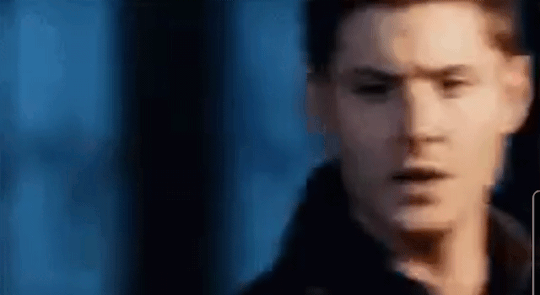
So, what's the deal with showing vs. telling? It's all about painting a vivid picture with your words. Instead of saying, "She was sad," you'd describe how her eyes welled up with tears, her shoulders slumped, and her voice trembled. That way, the reader feels her sadness, rather than just being told about it.
So, how do we show instead of tell? Easy! Take a moment to observe the world around you. Notice the little details—the way sunlight filters through leaves, the sound of rain tapping against the window, the smell of freshly baked bread. Then, describe those details in your writing to create a rich, immersive experience for your readers. Trust me, they'll thank you for it! 😉📚
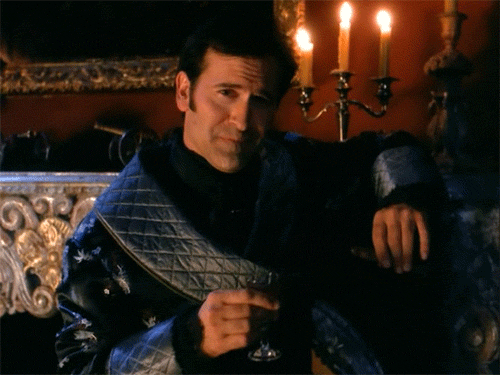
But wait! We're not done yet! Bet you thought we were, except no. Anyhoo, let's continue.
All right, let's break this down! We've got two groups in the mix:
Group 1, aka the yellow team, deals with all the stuff we can see, hear, smell, touch, and taste—basically, anything we can sense with our five senses.
Then we've got Group 2, repping the red and green. This crew is all about the things that are a bit more personal and inside our heads—like our feelings (that's the red zone) and our thoughts (yep, you guessed it, the green zone).
Now, when we're chatting with someone, we're usually hanging out in the yellow zone. We're picking up on all those sensory cues to understand what's going on. But when it comes to figuring out what someone else is thinking or feeling (you know, diving into the red and green), we've got to pay super close attention to their words, actions, and body language.
So, next time you're chatting with someone, keep your senses sharp and tune in to those verbal and nonverbal cues to really understand where they're coming from. It's all about staying connected and being mindful of those around you!
Now that we got that covered, let's give you some examples from actual writing by yours truly:

Okay, so check it: This sentence straight-up tells you how Salvatore feels, leaving absolutely no room for imagination. And guess what? That's the opposite of what we want to do as writers.
We want to paint a picture with our words, not just spell it out like a dictionary. So, how do we flip the script and show instead of tell, you ask?
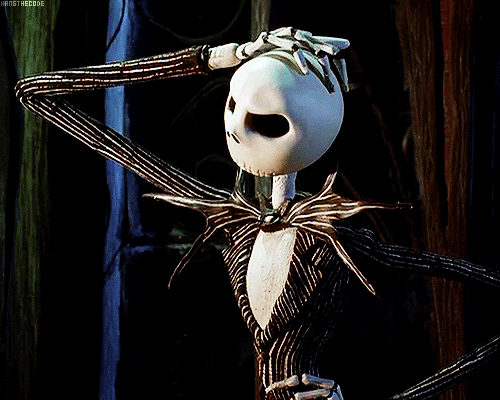
Easy! Instead of saying, "Salvatore felt sad" you describe how he appears. Maybe you describe the drooping of his shoulders, the frown on his face, and even a tear slipping down his cheek.
This way, your reader feels his sadness, instead of just being told about it.
It's all about using those descriptive details to create a vibe, you know? 🌟

Alright, so now we've got this sentence that's like, "Salvatore is feeling sad because his uncle passed away." It's like a peek into Salvatore's heart, showing us the real deal: grief.
But here's the thing: we want to make sure our writing isn't just stating the obvious. We want our readers to feel what Salvatore's feeling, you know? So, instead of just saying, "He's sad," we want to paint a picture with our words that really hits home.
Imagine describing how Salvatore feels like there's a weight in his chest that is now an unbearable reminder of the loss he's faced with. I could have also gone further to describe how his shoulders slump under the weight of his grief, and how each breath feels like a struggle, but I didn't.
Anyway, this is the kind of stuff that makes the reader experience the emotion, not just read about it.
Here are some more examples:
Telling: She was nervous about the presentation.
Showing: Her hands trembled as she arranged her notes for the presentation. She took deep breaths, trying to calm her racing heart.
and
Telling: He was just so in love with her.
Showing: Every time she entered the room, his face lit up, and he couldn't stop smiling. He found himself thinking about her constantly, and even the mention of her name made his heart skip a beat.
Last one
Telling: The room was messy.
Showing: Clothes were strewn across the floor, papers piled high on the desk, and books lay scattered around the room.
Remember, dive deep and really show the descriptions and emotions observed. Write what your character is feeling in that particular moment by describing both their physical and emotional state. 📝
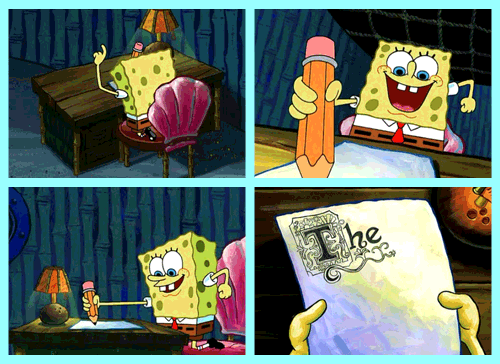
But sometimes just describing what's happening isn't enough.
Like, when you want to show how your characters are feeling, but it's not as simple as saying, "They're stressed."
That's where figurative language comes in—think similes, analogies, and metaphors. They help you paint a picture and describe what's going on inside someone's head or heart.
Instead of just telling the reader, "Hey, this character is stressed," you can say something like, "They feel like they're juggling flaming swords while walking a tightrope."
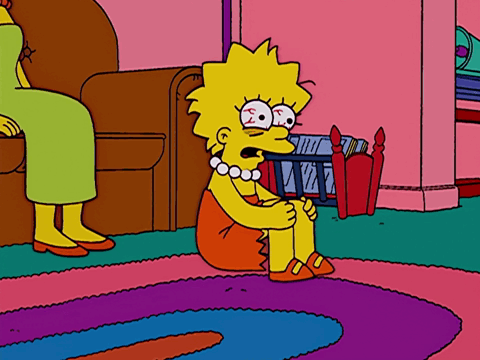
It's like, bam! Now you've got this vivid image that lets the reader really feel the weight of the stress without you having to spell it out.
Figurative language is like adding a splash of colour to your writing—it makes it pop! It gives the reader room to interpret and feel things in their own way, which is what makes stories so powerful.
So remember: describe what you see, and when you need that extra oomph, then sprinkle in some figurative language.
You might ask why is telling bad writing and something we should stay away from 99% of the time?
First things first, it's all about keeping it real. As real as we can possibly make it feel. You feel me?
When we're out here in the world, we're not just taking things at face value. We're observing, we're inferring, we're picking up on all these vibes to understand what's really going on with people.
That's just how we humans roll, you know? We're not robots—we're all about those thoughts and feelings, right?
And that's how we connect with one another. It's also how we make sense of the world around us, like we said before. When you're trying to understand someone or write about the human experience, remember: it's all about those observations and inferences.
The second and absolute worst thing, is that you're basically taking away the reader's superpower: the ability to use their imagination and envision the story with you. And that's the beauty of writing, you know?
Writing is like setting the stage for a play, and the readers are the actors who bring it to life in their minds. When you describe a scene, you're like the director, giving them the setting, the characters, and the basic plot. But it's up to the readers to imagine the details, the emotions, and the thoughts of the characters.
It's this collaboration between the writer and the reader that makes storytelling so magical.
You're showing them what's going on, painting this vivid picture with your words, and then letting them do all the heavy lifting in their minds—imagining the thoughts and feelings, filling in all those juicy details.
That's where the real magic happens. 🌟
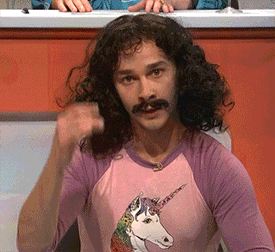
It's also how you get your readers totally hooked on your writing. But when you take that away with telling then you're doing your reader a grave travesty and this is why the second point is the absolute worst thing.
Another valid question, why do writers tend to fall to the telling instead of the showing?
Here's the thing, getting good at showing instead of telling takes time and lots of lots of lots of practice.
If you're not quite there yet, no worries—it's a skill that develops over years with a ton of practice and feedback too. You know you're telling instead of showing when an experienced writer is like, "Hey, you're still telling here!" This is why it's important to share your work even if it feels super scary and daunting to do.
Another thing is, sometimes we writers get a bit anxious that our readers won't get what we're trying to say, so we just spell it out for them.
It's like, "My writing might not be clear enough, so let me just tell them exactly what I mean." But hey, we've all been there! It's all part of the learning process. And the best way to get better at something is to keep doing it over and over and over again until we get the hang of it and it gets easier.
Build that writing muscle and keep writing. Hope this helped. Thank you for reading and check you on the next one!
#about writing#writing advice#writing#creative writing#on writing#writing stuff#writing tips#writing help#wrtieblr#creative wrting#wrtiting#writeblr#writingblr#writers on tumblr#writers#advice to self#note to self#how to write#writing resources#writerscommunity#tumblr writers#young writer#show and tell
74 notes
·
View notes
Note
can I request an Emperor!male!reader who was known as the Conqueror who died of heartbreak (after his daughter’s death) and the moment he died his empire that he expanded basically fell apart since his daughter was his only heir and she died before him which left his generals and the nobles fighting for his position, oh also I want him to die at like 32 while his daughter was 17 (yes I want his daughter to be illegitimate since he wasn’t married and he had her when he was 15, and he fought his father, the emperor at the time to legalise her which his dad refused but the moment his dad died and he became emperor he legalised his daughter and made her his only heir)
-Historians regarded you as a wonderful leader, you were honorable, loyal, and you led your empire to glory days while you ruled.
-However, the thing that most praised you for was that you were a family man first and foremost. To you, your family was the most important thing, and many adored you for that, because it made you more human. You were an emperor, but you were a human first.
-Your love for your family came from your daughter, whom you had out of wedlock and when you were young, only fifteen. Because she was a bastard child, your father refused to recognize her as your child.
-You made sure your darling daughter had more love than anyone else you came across, even her own mother, a concubine, as well as your other concubines, ones who all wanted to be your future bride and consort.
-The moment your father died and you ascended the throne, the first thing you did was legalize your daughter as your heir, something many thought was unusual, as most would make the first-born son the heir, but not you- your daughter was there first so she was your heir.
-This angered the other concubines, who wanted their sons to be the heir, as they would have an easy life once their son took the throne, this wasn’t going to happen with your daughter in the way.
-That’s why they did something about it, poisoning her on her seventeenth birthday, during her banquet you had prepared for her, but the concubines were sloppy and quickly caught. You immediately arranged for them to be executed, showing everyone what they had done, killing the precious princess, and many agreed with your decision.
-However, losing her, losing your daughter so suddenly, so quickly, you quickly fell ill, your heart breaking, and you passed within a few days.
-The empire you worked so hard to make into a prosperous nation quickly crumbled and fell, as you had named no other heir, not one of your other children or one of your trusted advisors and your empire fell in a mad grab for power.
-In Valhalla where you were welcomed as a hero, one who was a fine example for a leader, you kept to yourself, still mourning your daughter who had not ascended to Valhalla as well. You had lost her twice, and you mourned not being able to see her ever again.
-As your grief healed slowly, over the many years, you became a mentor, despite your own young age, being in your early thirties, and you met with other notable leaders throughout history, making friendships and bonds with them.
-Many knew of your love for your child and how cruelly she had been snatched away from you, but they knew not to bring it up.
-Many of them didn’t know the pain of the losing a child, but they had seen how fragile you were when you were thinking about her, when they only knew you to be a strong leader- it was like you were a different person.
-The two that you were closest too was Apollo and Qin Shi Huang, it was an odd-looking group, the three of you, but you were all very similar in personality, you were confident, sometimes cocky, but very wise and all good leaders in your own right.
-You and QSH had similarities because you were both emperors as well as some of histories greatest leaders, so you had that kinship, as you both knew firsthand how rough being an emperor was, but you also knew how to be good leaders, in helping others, fighting alongside your people and not just commanding them.
-Apollo was the one who saw you first, admiring you from afar, you were in a position of power, but you weren’t cruel or arrogant, you seemed so- so human, so down to earth, yet you wore your emotions on your sleeve.
-Apollo liked that about you- you didn’t try to put on a mask, hiding who you really were, you were just you- you were just Y/N.
-Both of them were rather protective of you, protective against those who knew your one weakness and would try to use it against you and while they could tell that you were trying to remain strong, seeing others being so unnecessarily cruel, broke your heart.
-Apollo was usually the first to step in, ripping our accosters a new one, before QSH would join in, asking if they had ever lost a child. This would usually shut them up, making them realize that what you were feeling was the pain only someone who had lost a child would feel, it made them think of their children, it made them think of what it would feel like if they lost their children.
-You were grateful to your friends defending you- sticking up for you, as they couldn’t even begin to imagine the pain or the sorrow you must be feeling, but that’s why they protected you, as they knew what it was like to feel powerless, to feel useless, and if they could help you like how you helped them when they were feeling low, they would never hesitate.
109 notes
·
View notes
Text
Retraumatization vs. Self-Soothing (Part 1)
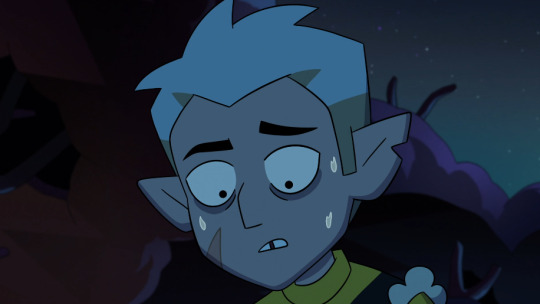

There will be a Part 2 that focuses on new material from Watching and Dreaming.
Warnings: Heavy discussion surrounding how trauma works, mentions of self-harm, suicidal ideation, death, effects of abuse and discussions about therapy (from my perspective as a practicing therapist).
Military training and preparation in Hunter's old life as the Golden Guard did not make room for two aspects of mental health issues:
getting retraumatized, and how to self-soothe (which is rooted in relationships, not to be confused with the cognitive clarity that I imagine Belos expects from the elite Emperor's Coven).
Having a clear purpose laid out for him by Belos as a result of enmeshment with his parental figure...is what he was so used to, as evidenced by this line:
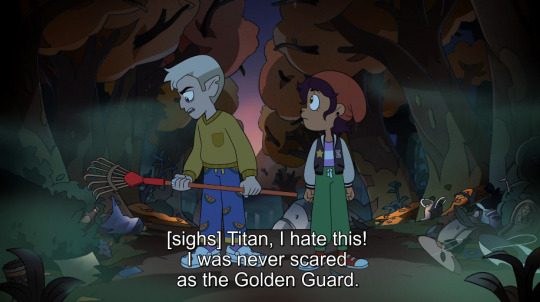
He lost that sense of purpose, since Belos betrayed him. It will take much reassurance for him - from external inspiration, and having it be internalized over time - to believe deep down that he is allowed total freedom to decide who he'd like to be.
First off, retraumatization:
You can be triggered but not necessarily experience retraumatization, sometimes it may be a partial episode, sometimes a full-blown episode. It is almost always unavoidable in complex trauma and can happen in unexpected places at unexpected times, even in therapy sessions.
Hunter was clearly retraumatized during his 2nd and 3rd panic attack scenes. In For the Future, I think the two scenes where he rages also count. All those scenes except the 3rd panic attack were partial retraumatization, but the haircut scene seems like a full-blown event where it's pretty obvious he's at risk of seriously hurting himself. He was reliving the unspeakable.
Examples of him being triggered but not retraumatized are when he saved Gus towards the end of Labyrinth Runners, and at the end of Clouds on the Horizon when he failed to save Luz.
I know from my own C-PTSD experiences that the intensity of such episodes can vary: ranging from a small annoying mental prick that is far away enough that I'm not even irritable or noticeably scared, to feeling like my soul has been torn apart all over again.
I personally think the most insidious part of complex trauma is the first number of years of its aftermath, like aftershocks which can be more damaging than the original events. Once you are safe from the immediate danger, grief settles in for real, you begin to see in retrospect how screwed up the events were, and you're in a minefield of painful reminders.
Casually taking a second to consciously remember a tiny fraction of the events can be enough to reel you into being retraumatized.
For the rest of Hunter's life, there will be so many bad memories he retains. Some days he might be fine, but there could be days where saying Flapjack's name out loud might be enough for the floodgates to open. He might feel that he'll be fine in opening up to a new group of people about what happened, but once he begins he might find it hard to breathe again. If he's anything like me, he'll also be stricken by a bunch of nightmares about being trapped in places, or about people hating him and acting like he doesn't exist.
Some memories will be more notable than others, one of which is the searing memory of Belos's ultimate display of rejection (wanting to discard him once he asked "What did you do to the other guards?") and of abandoning him:
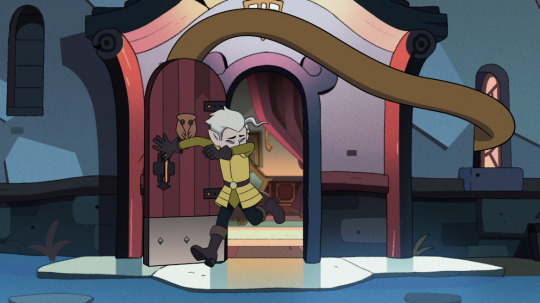
And I suppose the darkest of all, the muscle memory of the helplessness he experienced during the possession scene:

And the blame he'll inevitably place on himself deep down, despite his efforts to rationalize and convince himself that it was all Belos's doing. He has been tainted with moral injuries that have marked him for life.
During life-altering events like this, there is usually a most upsetting split-second that a client can single out when they process it in therapy. It's even used as a narrative device of sorts in shows: here it's when we see the shadow on the ground showing him hurting Flapjack, and off the top of my head I remember it being a significant point in another show I like, The Sinner, which the plot built up towards.
In trauma-informed modalities like Eye Movement Desensitization and Reprocessing (EMDR), the therapist literally gets the client to find this most upsetting mental image as if its a frame to single out in a mental video file, and will then measure how disturbed the client is.
This is only done after 1) trust (rapport) can be clearly felt in the relationship between therapist and client, and 2) they get the client to put in a solid amount of practice imagining themselves in a safe space of their own choosing (which is like the opposite of a traumatic flashback: positive and deliberately created, not negative and automatic).
It's easy to identify what sensation Hunter would find the most upsetting:

Anything that might remind him of this tactile experience could open that doorway to feeling retraumatized.

*horrible cracking sound of palistrom wood being damaged*
And it's almost like the web of awful reminders (internal and external) he has, will branch out of this worst exact moment.


Therefore his treatment plan would require much tailoring and room for variation depending on what kind of day he is having.
A concern that his loved ones would have is of retraumatization like below, that presents the risk of self-harm:
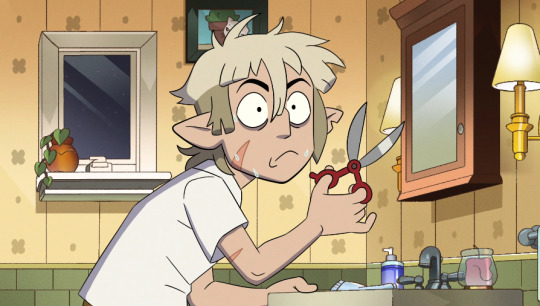
Another concern is the risk of the terrible voice of C-PTSD whispering things to him, the inner critic that might be fed by survivor's guilt:
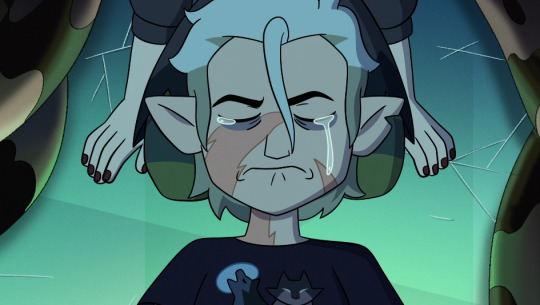
(E.g. "Why did Flapjack have to be the one to die? It should have been me. I don't deserve my loved ones. Maybe I shouldn't even exist")
or fed by Belos's gaslighting which definitely happened several times offscreen:
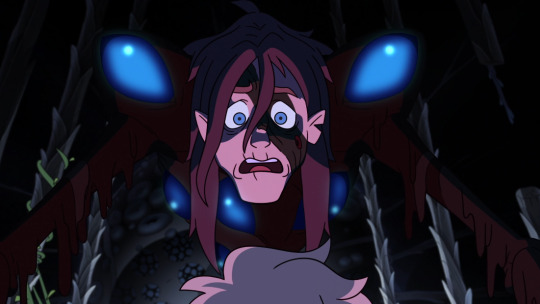
And: Hunter wants to learn how to carve palisman, a craft that will bring new meaning and fulfilment as he heals, but which won't be as easy as he'd like it to be.
I was astounded like crazy when looking back at this:
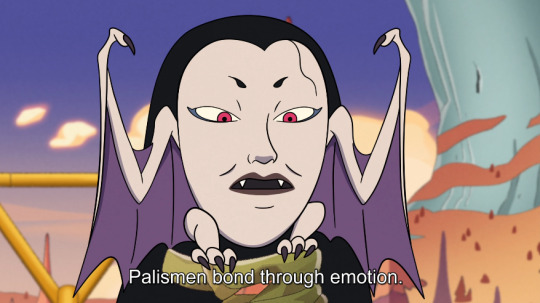
"Palismen bond through emotion. I do not sense any conviction from you."
"Emotion" and "conviction"...
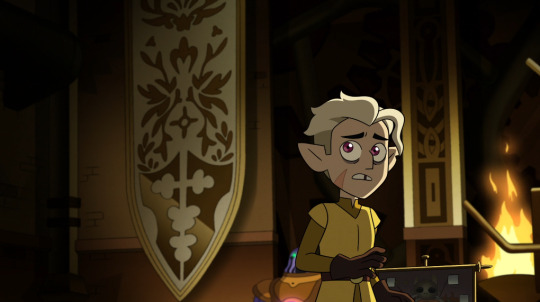
both of which are essential components of recovering from trauma.
It couldn't be more poignant to have the character in the show who endured the most trauma (if you count how in his old life, he stole palismen and sent them to their doom, to literally keep his abuser alive), want to be the successor of this craft.
I think he will have to embrace "emotion", like never before. And "conviction" about his life direction.
If he ultimately shuts himself down, isolates himself, letting the grief imprison and encase him,
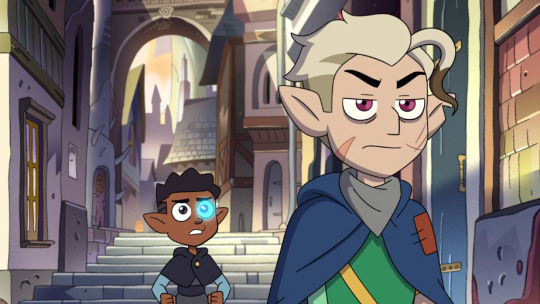
that would be the antithesis of the big speech he gave in Thanks to Them. But I know he'll have the amazing resilience to want to love and connect deeply. And to make sure Flapjack's sacrifice wasn't in vain.
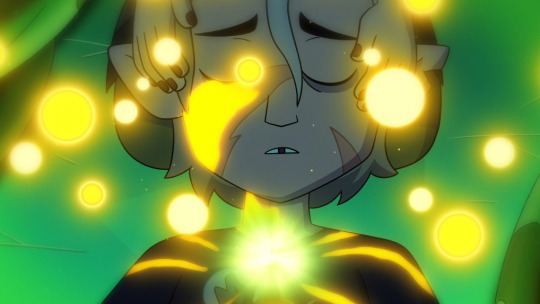
I'm already thinking that whoever his therapist might be (and my god, I 100% say he needs one. I'd rather he not refuse therapy, though maybe he'd need a bit of time before he starts such sessions, because his case desperately requires someone properly equipped to untangle all that trauma).......they ought to establish the following:
Increasing his self-awareness, acknowledgment and acceptance of his mind and body. The frayed feeling of being hypervigilant. The scars covering his body.
The talking aspect of the therapy will play a role in attaining this.
Recognizing internal and external trauma-related triggers and cues that may show up in his routine, to actively take self-care measures, e.g. he is unpleasantly reminded of something during an outdoor picnic with the others.
Going through skills such as containment and distress tolerance. Sometimes a therapy session can get scary enough that a client cannot feel safe taking their pain home with them. They can practice containment by visualizing themselves leaving their pain with the therapist for safekeeping. Eventually, the client can hopefully contain the pain themselves and bring it with them wherever they go.
Distress tolerance examples include naming all objects of the same colour around you, or doing something nice for another person.
Being familiar with the specific self-care methods that work for him, since this will vary a lot from individual to individual.
In the first number of months learning how to carve in the workshop/wherever he'll be taught, he definitely should not be left unsupervised, not just because of inexperience in carving: but also in case of retraumatization. The simple act of merely touching any palistrom wood on a bad day might be enough to viscerally bring up the upsetting image of Flapjack being harmed.
A guardian figure (current best guess: Camila?) must be briefed on how to be present for him and what to do if he needs help during bad episodes, relapses or other emergencies.
Said adult should join in the therapy sessions at times to reinforce trust and safety in Hunter's new world of officially being in a family.
An adult is a far better choice because the other kids should not shoulder such a responsibility (i.e. being parentified like what happened to Hunter) as they process their own trauma, though they of course can help in smaller ways.
If he's wanting to make his own new palisman (very high chance that this will be canon), I bet people like Eda might want to run through that with him. It may not appear onscreen but the therapist could also discuss this with him in sessions because it'd be good to think through whether to allow some time to grieve Flapjack first, even down to details like discussing the meaning and intention of creating the new one, does he want the size and feel of the new one to be different, etc.
Perhaps he should even bring the work-in-progress carving to therapy where the therapist can check how he's doing in real-time with the tactile experience of touching and feeling the wood in his hands, processing the likely fear he'll have of harming anymore palisman (yes, even the new ones he creates), especially with how things went with Flapjack.
The underlying theme would be his new opportunities to create life vs. the trail of destruction he has been a part of via his association with Belos. His own hands have created things, and have not just played a role in damaging and destroying lives.
Looking into the kind of relationship he has with the idea of physical touch, since his body has been violated, since his being was reduced to an object and tool.
Forming new associations to exist alongside the old associations, e.g. when carving a new palisman, it'll be a very long time before he'd ever engage in that without Flapjack even crossing his mind, if that's even a possibility.
I have a good feeling that a new palisman of his own would naturally help him along in terms of keeping him calm and grounded using physical contact, by filling an additional role as his trauma support animal (Flapjack himself was undeniably an emotional support animal, like a war veteran's therapy dog).
Therapy plus his support network could help him hold both the newly forming memories together with the old haunting ones: they can coexist, and logically the general intensity of the traumatic memories will decrease over time.
Biggest of all in my opinion, keeping him from falling into black-or-white thinking and catastrophizing especially re: the grief about Flapjack. Seeing how he is coping with feelings of grief, guilt and shame. He would be feeling guilty, like he is leaving Flapjack behind or like he is choosing to forget him (this pattern is common in bereavement), if he chooses to have another palisman of his own. But he needs to believe he can still make space for Flapjack in a new way, in his life.
("Black-or-white thinking" and "catastrophizing" are from a list of what's called Cognitive Distortions, a handy aspect of the commonly used Cognitive Behavioral Therapy theory, or CBT. You can easily look up the various types with a Google search)
Finding ways to honor Flapjack, honor the good memories and integrate the bad ones. In the early weeks it will be a lot for him to remember specific times like this:
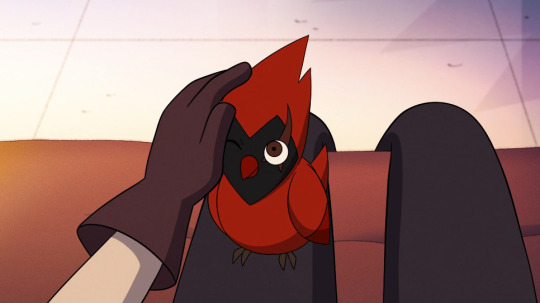
without being able to separate them from the worst memories of harming Flapjack, and the potential to spiral into retraumatization will be high.
This poor teen might run into the "What's the point?"/"There's no point" depression wall which is a frequent sign of black-and-white thinking in recovering from trauma and grief.
There would be more on the above list for sure, but this is a substantial portion of it.
Next, self-soothing:
Self-soothing has not come naturally to him (yet), but he has had exposure to being soothed by others. There are also great clues that he needs this, such as the plushie he owns and keeps under his pillow.

Gus introduces one form of this to him, the square breathing technique, in Labyrinth Runners. Further practice to improve at self-soothing would be an upgrade beyond the basic actions we do on autopilot. An example of basic body language is Hunter slightly hugging his lower legs and bringing his knees up in front of his chest to feel safe here:

I think the root of him lacking the skills to effectively self-soothe is...he has not experienced secure attachment with a parent/guardian.
Attachment theory (devised by John Bowlby in the 1950s and expanded upon in the many years after that period) has to do with how kids develop a sense of security and whether they can bond with and depend on responsive and responsible caregivers or not.
There are four attachment styles, three of which are insecure compared to the healthy secure type of attachment.
1.Anxious attachment: Children with this kind of attachment have very high distress when a parental figure leaves and is absent. The kid may show needy behavior and have a low sense of self-worth, and struggle with the tension between craving closeness with others yet feeling they're unworthy of that.
2. Avoidant attachment: This usually means the parent prioritizes the child learning hyper-independence, and may punish the child for naturally asking for help. It would reach the point where such children avoid the parent, and even show no preference between said parent and complete strangers. Later in life, they may stay away from being vulnerable, appear to have high self-esteem but dismiss others' emotions which would lead to relationship issues.
3. Disorganized attachment: This style is where the parent was inconsistent and unpredictable, perhaps being both a source of comfort and fear, so the child's attachment pattern is reflected in a confusing mix of behaviors and being quite on edge. The world and the people in it would feel scary and unsafe for the child.
4. Secure attachment: As you can imagine, such kids would have had their needs attended to by a parent who has a calm, soothing presence.
My hunch is Hunter leans towards the disorganized category, since Belos is terrible like below, sending mixed messages and getting Hunter to fluctuate between seeking attachment and recoiling from it:
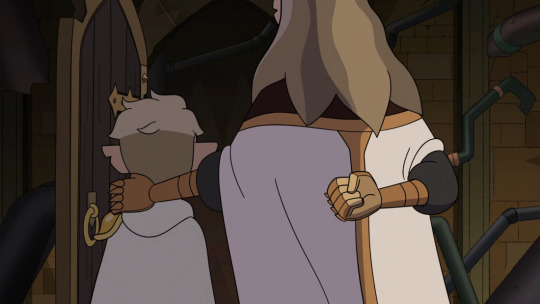
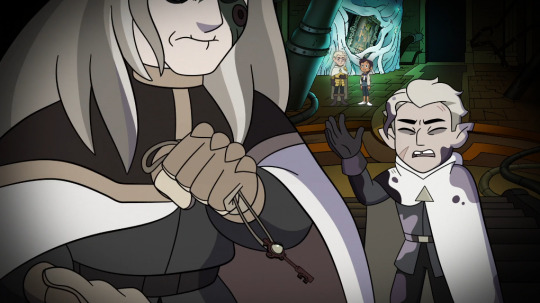
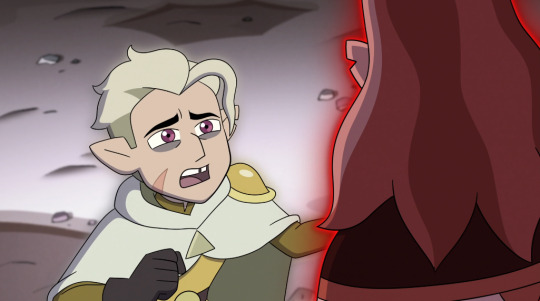
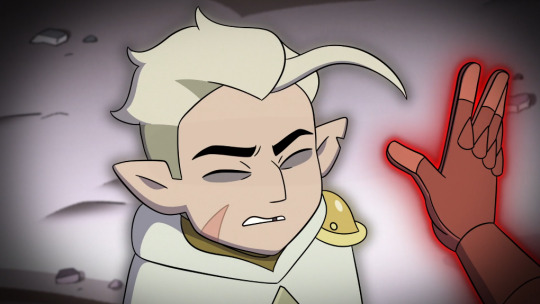
This takes us to the most important part of this analysis:
The need for warmth in Hunter's relationships.
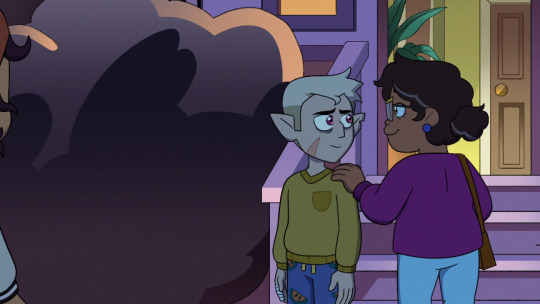
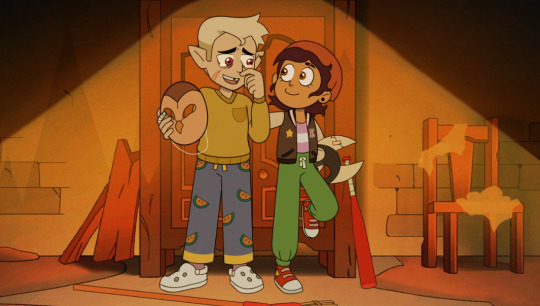
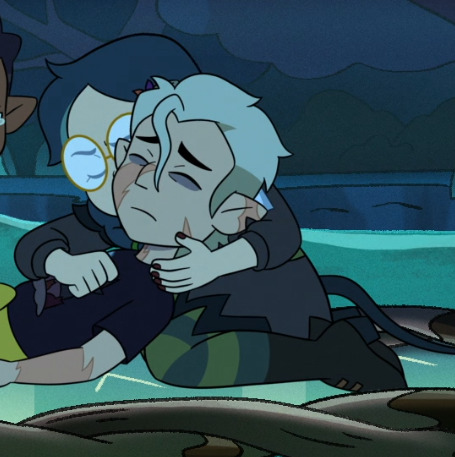

A concept not incorporated into a toxic culture like the Emperor's Coven. But which is vital to truly facilitate deep trust, and is essential in what Hunter is looking for most: a family.
And such warmth is something that extends beyond words, detached analysis or a theoretical understanding, all of which are processed by the prefrontal cortex of the brain.
It goes deeper into the realm of experiential understanding (and, physical affection is something that definitely lends to formative experiences), feeling trust and security, which of course is more subconscious.
Examples of putting self-soothing into practice include mindful walks, playing with a pet and journaling.
Making it a deliberate routine to promote a good ability to self-soothe - not just using it whenever he is retraumatized - would significantly increase its effectiveness e.g. I advocate for Camila giving him a good morning and good night hug every day, and/or giving such hugs before he leaves the house and after he returns home 😭😭😭😭 Something like that being predictable for a C-PTSD survivor can work wonders.
He won't be used to self-soothing immediately but as he grows yet closer to his new family, particularly becoming securely attached to whoever will replace Belos as his guardian, his wounded inner child will be exposed to the warmth needed for healing.
Soothing words to calm him on bad days, wonderful heartfelt hugs, to save him over and over again, like Luz's repeated "You're gonna be okay" from this past scene:
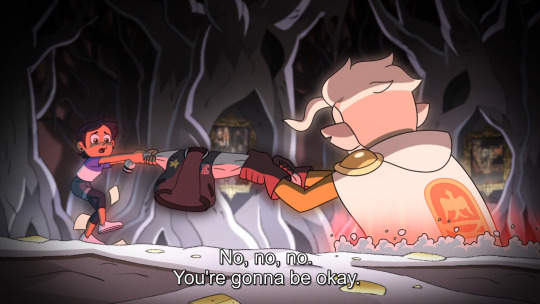
This is what he can take with him when he needs to self-soothe without immediate help being available.
It's certainly not the case that just because he lacked these key foundational ingredients in his years being a young scout and the Golden Guard, it means he is too late. Our brains have neuroplasticity, he can learn and still build a foundation with incredible people in his support network.
Plus. Plus! Related to the earlier section in which I speculated on the challenges he's up against when learning how to carve palismen: I have a good feeling that despite the painful memories and uncomfortable associations, plenty of room will be made for much beauty in that environment and profession.
I think the creatures he brings to life will love him a ton, and give back the doses of love that he puts out into the world, via his craftsmanship and him providing something so meaningful for countless witches out there.
It'll poetically be the opposite of the fear of the palismen he sent away in his old life, and the fear that followed him around like an overhead raincloud because Belos exerted control over him...and I'm a believer in love and fear being opposites.
*cue: a mental image I now have of a bunch of adorable squeaking live palismen flocking to him as their creator...like puppies being excited to see an approaching person*
To wrap up, both the concepts explored above tie in with a concept I researched a bit for this analysis: community mental health.

It is defined by the American Psychological Association (APA) as activities that promote mental health that are performed in the community instead of institutional settings.
I've experienced this as a peer support volunteer in a mental health charity's cooking and baking group in the past: it's a cool experience that has a distinctly different feel from sitting in therapy sessions, yet it's a good way to boost mental health. Having both in parallel is a powerful combo.
I'd put emphasis on the last bit of that definition, "instead of institutional settings", because early on I already thought to myself that Hunter, a cult survivor, should not be made in any way to feel as though his recovery progress is a test, evaluation or something performative. That might reinforce the sense of long-time isolation in the castle which he believed was normal before he met his friends.
Additionally it might be over-familiar territory for him to attach the notion of success vs. failure (applying that to his recovery process), to his worth. There's a hint of this in his reaction in Thanks to Them to not doing as well during Camila's brief pop quiz.
The Emperor's Coven and everything it normalizes is the height of "institution". Lilith is obviously the other character who has been affected enough by Belos and how her mother treated her for so long, to be prone to the same issue. We see it in how she begs Luz for approval when learning how to use glyphs.
Usually therapy feels prescriptive and staged, unless the therapeutic alliance between therapist and client is strong. But sessions are filled with technical wording such as "skills", "management" and the like on a normal basis. Which is why if Hunter attends individual therapy, solely relying on that in isolation will not be beneficial.
It must be paired with a healthy dose of community mental health care e.g. events in markets, schools and notable public places that will have a more organic feel to it.
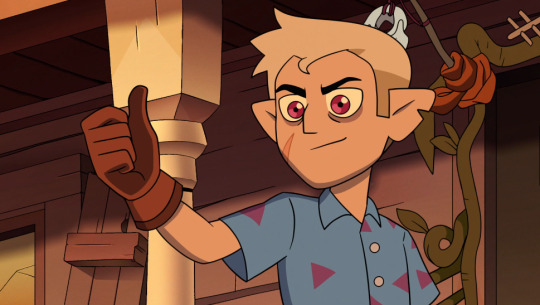
He needs variety in his treatment plan to dismantle the effects of the Emperor's Coven's fearmongering and rigidity. Variety can intuitively and wordlessly convey to him that life is meant to be lived, not survived. An in-between blend that involves a professional setting like individual therapy but also the community element would be group therapy, which I imagine is a given for so many people on the Isles after the great danger passes in the finale.
Belos's tyrannical reign has left everyone on the Boiling Isles with grief and confusion. It has left the worst scars on not just Luz but also Hunter, since the latter previously operated on the same side as Belos, and unknowingly advocated for a cause that he realized was the opposite of what he felt is right.
Community counteracts isolation and reminds Hunter that he is part of something bigger. There will always be spaces in which he can create something new, enjoy laughter as great medicine, and be heard and accepted.
The second and final part of this topic will be uploaded after Watching and Dreaming. I hope this first part was informative to read.
#LOOKIT MY CHILD#(OUR CHILD)#toh analysis#toh hunter#the owl house#possessed hunter#emperor's coven#loz writes a meta#retraumatization and self soothing
358 notes
·
View notes
Text
The itch for destruction, the hands of repression and my theories on AFO's involvement in Shigaraki Tomura / Tenko Shimura's past:
For all I prefer to interpret the hands around Tomura as AFO's way to control his grief and turn it into a weapon, there's another option to it.
According to the canon, Tomura was using the hands to keep himself in check*. Supposing that what AFO said is true and Tomura's itching is his urge to destroy*, then he was using the hands to remind himself of what he did to his family and why he couldn't let himself be left unchecked*.
Image for the orange text:
AFO, talking to Tomura:
" You carry an urge for destruction that you yourself can't even control. That itch is simply your body letting you know that your urge can't be contained any longer. "
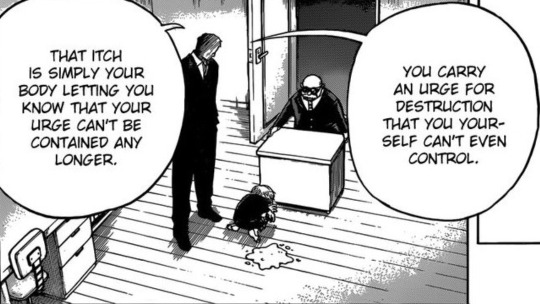
Image for the green text:
AFO, talking to Doc Garaki:
" He wears the hands of his family as if he's restraining himself, reproaching himself. With his memories locked away, all that's left are residual emotions. He's insecure. Just look at him. He doesn't even realize he's holding back when he's using his quirk. "

Those panels raise several questions.
For example, we already know how suspicious it is that AFO was the one able to find Tenko. Chances are that he had been observing the Shimuras all that time, but then why didn't he kill them before? What was he waiting for?
Another suspicious thing is that the hands of the Shimura were in perfect condition.* Tenko killed them at night. He says he flew from his house, he ran away. *
No one, absolutely no one showed up.
It happened in seconds, of course. The backyard probably looked like a war zone or something.*
Images for the red text:
He decayed the house completely, to the point it was split in two when he left. He decayed the sidewalk in front of his house and if you look closely, the house next to the Shimuras too.

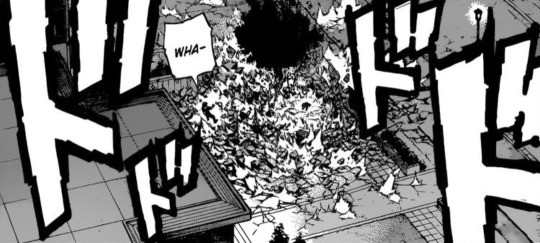
The question is: how was AFO able to search within that disaster for each individual hand of the Shimura family members before anyone could get there to clean it up? Those hands looked almost fresh, as sick as it sounds.*
You're telling me that AFO found Tomura— who was not speaking between, he went mute for a while after what happened that night— and he "coincidentally" found a way to get the hands of the Shimuras like it was nothing?*
My theory is that AFO manipulated Tenko more than we are allowed to know up until now.
Image for the blue text:
Doc Garaki talking to Tomura:
" These are your family members' remains. "

Did the police ever get there? To erase Tenko's existence just like that means that AFO had to either pretend Tenko died too or somehow he managed to erase the Shimuras altogether. What was said to Tenko and Hana's school? Or Kotaro's workplace? To the neighbors?
Were there any neighbors even? A house gets demolished at night with people screaming and no one even panics thinking that a villain can be attacking them?
Of course AFO had cops on his side. It's just a bit insane to me to think it worked out like clockwork just by accident.
Theory aside, it makes sense that the memory of his family kept Tenko anchored to his morals and the rights and wrongs of society.* He was a good kid, he wanted to be a hero to help people. He is also the type to hate injustice to the point he can't shut up about it. No matter how many times his dad punished him for following the hero ideals, he kept trying.
(I wish I could add more than 10 pics, but you should absolutely re-read My Villain Academia and pay attention to Tomura's general hesitation when it comes to hurting people— before AFO).
Like I said, there are several moments of Tenko avoiding his "destructive" side and holding the justice he knew from his childhood close to his heart.*
If what AFO says is true, then he repressed his memories in order to keep his quirk from being too aggressive towards others.* It was a defense mechanism that tells us that Tenko didn't want to hurt people, because he was fighting the urge to do so.* He was even becoming self-destructive in order to contain his urges.*
Images for the pink texts:
Panels show Tenko wondering on a street with his hands clasped together to avoid touching anything and therefore decaying it.
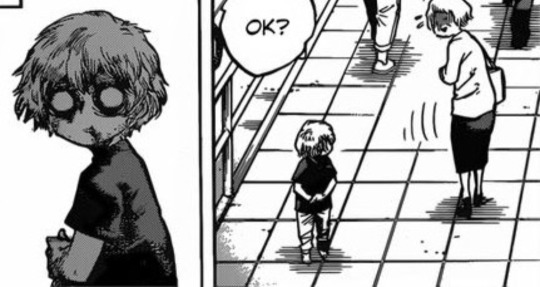
AFO talking to Tomura:
" What is that you want to do? "
Tomura talking to AFO:
" ... The two punks that hit me earlier... I want to kill them. "

AFO talking to Tomura:
" Aaah, poor child. What are you so afraid of? Just follow your heart. "
( notice that the encounter of Tenko and the two punks happens BEFORE Tenko had the hold amoral combo with AFO.
The panels show how Tenko almost reaches to decay the people who just hurt him, but he forces himself to back down, close his hand in a loose fist and leave it at that).
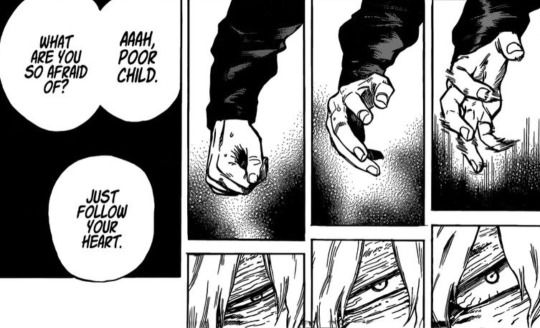
Like you could notice in the last image, it was AFO who gave Tenko the impression that he could give in to the urge to kill and destroy because it was okay.* Previous to that moment, Tenko was full of hatred. There are several panels of Tenko saying "I hate them all " the day he got his quirk and the Shimuras died. The difference is that he only killed the Shimuras because he couldn't even control his quirk and he killed Kotaro in particular with purpose, but while he was practically blind with the rush of all that was happening.
Never before Tenko killed someone premeditated. Never before he planned it.
When AFO gave Tomura the impression that the itching was because he wanted to destroy* and it was okay to destroy to get rid of the itch*, that's when it all went to hell.
It's a dangerous thing to tell an impressionable 5 years old who just got out of an abusive home in the most traumatic fashion. Especially because Tomura's hatred got mixed with the guilt over the way he killed his family. He was convinced that the fact no hero saved him was justice for what he did. He was throwing up over it. He ran away from home, scared because he was the culprit. He was 5 years old, I must remind you all.
AFO falsely liberated Tenko from his guilt by giving him the freedom to destroy*. It was clearly not the solution because Tomura's itch would only go away temporarily after destroying whatever was annoying him.
Listen, we all want to destroy things that annoy us on a daily basis. The problem with Tenko is that
A) He is very very little.
No one explained to him that he was allowed to feel pleasure over the fact his family could not abuse him another, while he could also feel guilty because that was not the way he wanted things to end. He lost his family. No, even worse, he killed his family. Even if they hurt him, he also loved them. Those feelings can coexist within him, but he shouldn't confuse one thing with the other.
B) All kids have tantrums.
If any 5 years old was given that type of power and I promise way more incidents like that would happen. They are kids for a reason, they don't know better. It's the job of the adults around them to teach them how to tolerate things and live in society.
Laws are there for a reason too. They are meant to keep people in check. No, you cannot murder everyone because you are stuck in the morning traffic. No, you can't murder your boss because they're an asshole. You cannot erase everything that bothers you from the Earth. Why? Because it won't make you happy in the long run. We need to learn to coexist with our surroundings, annoying as it could be.
AFO did the opposite. Just look at the way he speaks to Tenko. Even working on the assumption that Tenko always wanted to kill, it was AFO's manipulation who set him on the villain path.*
Image for the purple text:
AFO talking to Tomura:
" Otherwise, you'll be the only one suffering.
Integrity. Morals. Ethics. All of them are just social constructs designed by some guy who wanted harmony in the world.
There's no need to let yourself be held back by them. In the end, what you yourself want to do is the most important of them all. "
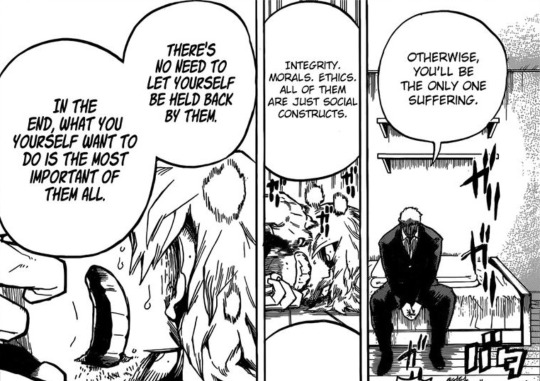
We know AFO is not the most reliable narrator and neither is Tomura, right? The bnha manga is currently on chapter 414. We're at the point where Tomura and Deku just started seeing each other's memories. Hopefully, the manga will soon clarify / reveal the truth and this meta would be obsolete.
Take this purely as a couple of people creating theories for fun, because they want to entertain themselves in hypothetical scenarios. Okay?
Time to close this endless meta post by saying I think AFO was wrong about the nature of the itch. It does come from a form of desire to destroy, but I think it's Tenko's reaction to seeing injustice and not being able to do something about it. It started at home, when he was unable to change the way his dad treated, when no one would defend him or try to stop his dad.
When Tenko killed the Shimura's, his hatred grew to everyone because he found them unfair. You could say hypocritical too. He learned to hate himself for killing his family, learned to hate the heroes saying something and doing something else, especially All Might because he is the symbol of heroism, but wasn't there to protect Tomura from all the pain. Isn't he "all mighty"? He hated Deku for the same reasons / for being a copy of All Might.
It's a twisted version of Deku running to save someone without even knowing what he's doing. an instinct none of them can deny. Where Deku's instinct was nurtured and taken care of, Tomura's was taken advantage of and corrupted almost beyond recognition.
But that's an entire meta I'll post later, so I hope you all enjoy this rambling. No idea if it makes sense, for which I apologize.
Any asks, to the inbox as always <3
#don't even know if this counts as meta so I apolgize for using the tag#bnha meta#mha meta#bnha#mha#my hero academia#boku no hero academia#bnha spoilers#mha spoilers#league of villains#lov#shigaraki tomura#tenko shimura#afo#all for one#bnha 414#mha 414#shan's bnha meta#shan's mha meta#shimuras#shimura family#doc garaki#tw throwing up mention#tw throwing up#tw drawn blood#tw drawn gore#tw body horror
51 notes
·
View notes
Text
Okay so I can’t find it but I saw a post about wishing at least one other character would acknowledge there’s a reason House doesn’t want to go to his dad’s funeral. And I wanted to say that I agree with this. And I think it’s the point. And that House as a show was also subverting expectations, so I wanted to talk a little about this.
So first off, I think it does really interesting things when you take a non-diegetic / non-in-universe approach to the show.
One, this was Supernatural era. You know, the show that sometimes categorized the dad (who would leave his child sons alone for weeks at a time, was sometimes implied to hit them, and openly shamed them especially Dean) as the only true hero. And also iirc a lot of shows and movies at that time centered around the theme of forgiving your abusive parent.
Two, in the previous season, we get an episode that canonically parallels the severe traumas of rape and physical child abuse.
Three, House never apologizes or forgives his dad. Yeah, he’s a misanthrope, so there’s a narrative excuse there, but he’s also allowed to do it. And he’s right about his dad not being his bio dad.
Four, for the above reasons, it is reasonable to view the narrative as being on House’s side. He goes because of extreme social pressures (which exist in the real world!) and, possibly, because his mom wants him there. But the narrative essentially says that his dad was a bad person and House shouldn’t have had to go. (With the possibly caveat of ‘[even shitty] funerals are sometimes a place to reconnect with living people you actually care about.’)
Part Two: Diegetic / In-Universe
House’s mom. This is really interesting, right? House’s mom is brought up over and over again. And the narrative thread is—she was abused, too. Should House connect with her? And if so, why and under what circumstances?
And what’s really interesting is, House doesn’t want to under the given circumstances. Because it means submitting to social mores he doesn’t agree with, including the circumspect of implying, “My dad was a good guy.”
But his mom doesn’t seem to see it quite the same way. “He’s not going to care [that we started late], Greg. He’s dead.” Essentially saying, this really isn’t about him. He’s dead.
So it’s this moral ambiguity again. Can and should House align with his also-abused mother? What would it cost him to do so? (And implied: childhood abuse can have lingering impacts forever, especially when people dismiss it because - the war is not over.)
To me, this episode is one of the examples where many characters take on roles as foils to expose a narrative theme. In this case: social pressure around “respecting your parents.” And I think it’s brilliantly done. I think when you have the overwhelming suffocating feeling of WHY ISN’T ANYONE LISTENING TO HIM
I think that’s EXACTLY the point
These motives are, to a degree, being placed on the characters. It’s extremely well-written, so it feels authentic, but to me it’s just as likely Chase would say “he shouldn’t have to go” and Cuddy with her mom would be more sympathetic. But the writers chose to unearth all the reasons each of them would put social pressures on House. And this happens to people in real life.
And of course, Wilson. It’s not inauthentic for Wilson. He’s doing two things at once. One, he’s playing out his own issues around social obligation. Two, he’s grabbing onto “I am socially obligated to be around House” like a lifeline.
Which leads us to the second theme of the episode, which is inherently true to the characters and deeply humanizing.
Complicated grief.
House’s grief is complicated because of social pressure. And he’s not sad his dad is dead—he’s sad that it changes nothing. Like he says to the kid with the facial deformity: “you can change your face, but you can’t change who your face made you.” House can change his circumstances. But he can’t change who they made him.
And Wilson’s grief is complicated because his girlfriend died suddenly, violently, unreasonably. And his best friend was deeply involved—in trying to save her and in her ultimate loss. He’s terrified of losing people and he almost lost them both. And because it’s Wilson, he represses, justifies, and misunderstands his own motives which makes everything harder. And it’s also deeply real. People compartmentalize. They misunderstand their own feelings.
So yeah! This episode is a twofer. One is meant to make you scream internally about the social pressures around funerals and abusive parents. The other is about complicated grief and mourning, and reconnecting despite and sometimes because of death.
The complexity gives me brain worms. I love this episode.
34 notes
·
View notes
Note
one of the many things i hate orv for is making me be so dependant on yoo joonghyuk getting a happy ending— it's all kim dokja's fault i swear i wish for it so bad. the thought of this man not being able to be at peace and happy in a world where his friends and family are there without the scenarios, makes me mad with a grief i didnt know i was capable of feeling for a 'character' 🥲
(what's also funny is that yoo joonghyuk's happy ending, where his friends and family are happy and well, kim dokja is also there standing besides them. But kim dokja cannot even imagine a world where he can be together with them without 'failing' and atoning. 💀✌️) a happy ending for yoo joonghyuk would be one with you as well kim dokja you fool
aughh anon the entire content of this ask has been on my mind for months. do we have some sort of a mind link be honest. also this will have spoilers for epilogue and side story below
aghh kdj wishing for and working so hard for yjh's happiness truthfully translated into us wishing for the happiness of that sunfish too I'd say. 1863 abandoned lives and worlds existing solely to meet his sponsor and find the reason he exists, which is also linked to said sponsor, made him feel liberated and at peace. a feeling which only kdj, said sponsor, took issue with. his guilt is so huge, so strong, he cannot fathom that yjh will not resent him after having his tragedy be used as someone's sustenance.
after kdj split himself into 51 and 49 in order to atone and sustain the world in which yjh and the rest of kimcom will continue to live, he'd already started imagining how their lives would be. 49 and yjh would search for tls123, 49 would read hsy's novel, 49 would attend ljh's graduation etc. what he didnt count for was kimcom regressing to get him back.
after the group regression, yjh says that his story has already ended now that his reader is no longer there. some time later, astronaut yjh sets on a space journey to spread orv and piece kdj together except that he fully expected to die and the mission to fail because just like kdj had learned to live from him, yjh no longer knows how to live without kdj anymore. in fact before sp and 999 gang save him and biyoo appears yjh fully expects that his -- will be 'death' (as if kdj would allow that smh).
after nearly a hundred years he descends into lhh's worldline. i think most of us know that lhh is 49 kdj's reincarnation by now, what i didnt catch the first time around however was that yjh and lhh met right after lhh considered committing suicide (lee "i have no trauma" hakhyun is a fucking liar) but chickened out in the end
a few thousands more years pass and yjh returns to the 1864th worldline. he talks more, he smiles easier, he no longer cares what his -- will be. and hes let kdj choose for himself whether or not he wants to return. he has been kdj's reader for thousands of years, he Understands what it means to get the will to survive by reading someone's story.
and in the side story he wants to take that choice back. he'll bring kdj back himself. cuz hes obsessed. hsy failed so now is his turn. except that his turn hasnt started yet. so who knows.
anw tldr yeah you cannot divorce kdj from yjh's (happy) ending. if any number yjh hears abt kdj in whatever way shape or form he'll get curious abt him. 41, for example. even after excluding lhh, 41 got curious abt kdj. hsy shows him a happy memory of our yjh which included kdj and 41 fucking collapsed (i become more excited abt the side story the more it progresses) and lost consciousness. it was such a strong memory of kdj and kimcom eating yjh's cooking and kdj saying how he cooks so well and he should bring more beef next time that hsy described it as yjh dying from happiness. yjhs -- is kdj related in one way or another. kdj just has to Get It that yjh cannot be happy without him
126 notes
·
View notes
Text
A great thing about the good place is how all four of the main crew are actually self-centered
We commonly identify forms of self-centered behavior such as selfishness that is exemplified by Elenor. (aka "a Bad Person"), but then you have Chidi and Tehani. These two are far less classical in their self-centered behavior but are still self-centered, nevertheless.
The show makes Tehani's folly pretty clear, despite all her philanthropic acts she still centers herself in every situation. How she ended up there is actually parallel to Elenor's upbringing, the only real difference is the glitz and the glamour. They both had parents that were withholding for one reason or another, neither felt seen nor wanted and so one shut down to protect herself, the other made her entire existence a performance, either way they are deeply, deeply self-centered people.
But Chidi is my favorite, for the obvious reason that his self-centered behavior is the least obvious. Now of course it's made pretty clear to us as viewers but as a character within the world, for nearly all situations most people would judge Chidi as a good (albeit, sometimes annoying) person. You'd be hard pressed to find anyone who would out right call him self-centered... yet he is!
Chidi acts as though the world rests squarely on his shoulders, that each little choice he makes carries the weight to change the trajectory of humanity. Putting this into words pretty clearly illustrates the ridiculousness of it. It simply isn't reality, and it shows how, even though Chidi is a "good person" (vs Elenor and Jason) he is still susceptible to the very human condition of not looking past yourself. Another way to state it (as I'm sure many have before) he basically suffers from thinking he's a main character. (lol) Now, lucky for him he actually is one but translating this to real life you can see how people fall prey to this way of thinking, convoluting their lives due to the faulty belief that they, and they alone, can make or break the world around them.
This rolls around my brain like a marble because, I did this! For an embarrassingly long time in my youth, I truly felt the grief and horror that comes with thinking you, and you alone, can fix the world's problems. And I think this sort of thing isn't talked about enough because there isn't an obvious red flag of being a "bad person". Chidi is "good" and so there is a smoke screen effect hiding how poor his behavior actually is. (Can you tell I deeply identify with his character? 🤔)
Jason is an interesting case in his own right, because he's self-centered almost in the same way as a small child. I assume Donkey Doug was simply unequipped to help Jason develop past that stage in his upbringing, in tandem with say... other lifestyle choices, Jason's overall mental development is limited. He's an interesting example of how not all self-centered behavior is motivated by innate "selfishness". Jason is very much capable of empathy, generosity, and comradery, as shown by his relationship to Janet, lifelong friendships, and his participation and organization of a 60-person dance crew. This is in opposition to Elenor, a selfishly self-centered person who could not form meaningful or lasting relationships.
Jason Mendoza's behavior is more of a big kid who acts on impulse, this can obviously be perceived as "hurtful" and when done by a grown adult it may be judged as "he's a bad person". But when looking at his overall character it's clear that he doesn't make a single move with any ill intent or malice. You can easily reason with him in nearly all situations, even when he chooses to throw a molotov at a train, all it takes is grabbing him by the arm and telling him to knock it off. He doesn't argue or get defensive, unlike versions of Elenor who would tell you to "go fork yourself". Jason is only self-centered because he struggles to see the big picture, but when it's shown to him, more often than not he accepts it with a little guidance.
I have no end point here other than watching these characters exude self-centeredness in four distinctly different ways, only to then learn and better themselves, is a delight!
#tgp#the good place#tgp spoilers#not really but whatever#damn i didn't even talk about micheal#whatever maybe later
75 notes
·
View notes
Note
Vertin has an easier time of letting go and moving forward now after getting so used to it, but the past is eventually gonna catch up to her and that weight becomes unbearable. How long until she's forced to face that unprocessed grief? Until she learns how to help others without it being at her own expense?
How long would it take for her to re-learn how to enjoy the present/her life without feeling immesnely guilty for what would never be and might've been, and indulge in her interests again without feeling that its selfish?
The survivor guilt and savior complex are real. Now that she isn't alone anymore, I hope she is able to see the value in her own life as much as she sees it in others.
PREPARE FOR MORE ANALYSIS AND LORE!
Sometimes I wonder if Vertin feels like she needs to live for the sake of other people. She has to remember them because the world won't once its Reversed. She has to find the truth and stop the Storm for all the people she's lost to it. Now that she has people under her personal protection, she pushes herself even more to be everything they need her to be.
I think the one thing she wants for herself and not for the sake of others, is the truth about her mother. Mr. Man mentions Vertin's rationale a lot, but he also prods at the trauma she holds in many of their interactions. He's pretty abrasive about it too. Here is one of my favorites for character analysis reasons. Chapter 4-20 Outside the Spotlight:
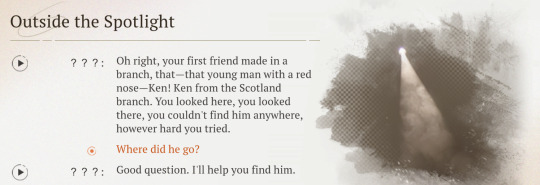
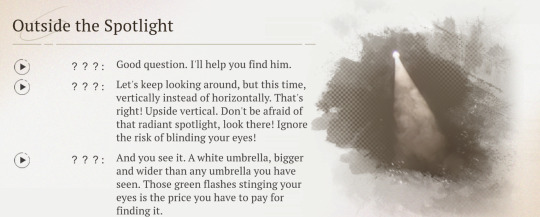

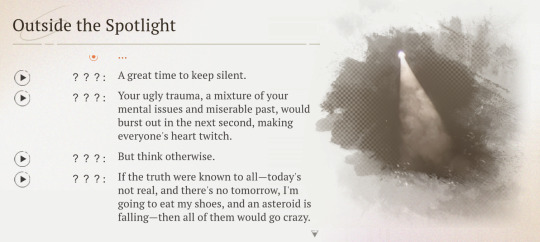

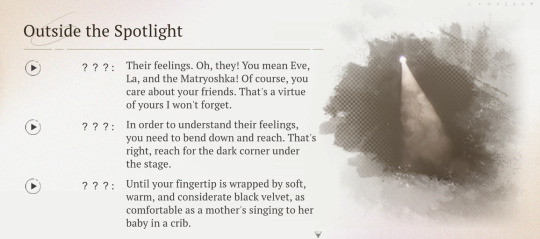
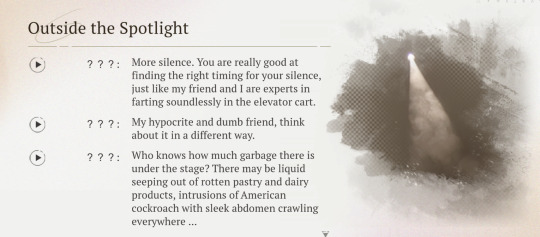
Here is just one example (there is more to this and some was cut out for readability). This is kinda what inspired me to write the fic tbh because it shows how helpless Vertin really is in the face of the Storm. The idea of Vertin wanting to create a perfect shelter for those close to her might be from the trauma of loss and is a way she copes. From the context clues this is when Vertin was at a ceremony for the new St. Pavlov Foundation Squad Leaders. Vertin is shocked to see Sonetto amongst them the others on stage.
Not only that, but the same people who allowed her friends to get Reversed are saving Sonetto for her. It's like Vertin sees Sonetto as someone she is supposed to be protecting and yet, there she is. Sonetto is standing on stage with other arcanists destined to be martyrs. It's symbolic of Vertin's own failure.
Sonetto isn't safe. No arcanist is safe under the Foundation. Look at what happened to poor Ken! She is worried about her other friends, but she is made painfully aware of how little she can do.
But she tries. And she keeps trying no matter how pointless her efforts are in the grand scheme.

#reverse 1999#vertin#anon ask#sonetto#character analysis#im sorry i got carried away#im just looking for opportunities to scream how much i love Vertin#more trauma related psychubes#fun fact#sonetto shows up in a lot of things related to vertin's trauma#im not trying to squeeze her in but she keeps popping up#its like she represents everything vertin failed at#better arcanum#better grades#nearly got reversed because of vertin#vertin got their friends erased#she forgave vertin when vertin still struggles to forgive herself#needs its own post
61 notes
·
View notes
Text
dS rewatch shenanigans
So me and @mannequin3thereckoning rewatched 2.04 Bird in the Hand, 3.02 Eclipse and 4.03 The Ladies' Man (or 4.05, depending on the region; I like this ordering of the episodes better, it makes the season more equally paced to me). Somehow we picked a nice equal distribution between seasons 2-4 (sorry s1, I just did not have that much free time!)
It was fun to compare the impressions between us, a person who's fresh off a rewatch and one who didn't touch dS for some years :) Unlike my rigorous friend, I don't have it in me to do a separate post for each episode. It's all pretty chaotic, but here goes:
Bird in the Hand
It was funny to notice how much easier it is to judge the pacing of an episode while also chatting about it in real time compared to a regular watch. This one is pretty much perfect!
It's a great showcase for the side of Fraser that sometimes gets lost between screen and fic, or screen and meta—his lowkey permanent annoyance with his circumstances ("I'm not sulky. I don't sulk," he said. You know, like a liar!) and his masterfully contained intense anger. It's so funny how annoyed he gets with Turnbull! Finally, someone at the consulate who gets more shit than he does haha.
Also another great example of Ray consistently ready to both stir up shit and take shit for Fraser in a highly stressful situation where Fraser's hands are tied. “He’d shoot him for you if you asked"—even Dad knows <3 Linking this wonderful art to express my endless appreciation for how well-oiled Ray and Fraser's banter is. No one does put upon like Ray Vecchio. No one.
And, I mean, the emotional centerpiece of the episode is BRILLIANT. The tone balances on the usual dS edge between wacky and weighty juuust right for juuuuust long enough via Ghost Dad, and then it cannonballs right into heartbreaking because of the Ghost Dad in the span of two lines, sustains it for one of the most effective conversations in all of dS and eases out of it by—you guessed it—Ghost Dad diffusing the tension with continuous murderous overtures.
And I think Fraser's ✨Plan✨ in this one is a rare example of his speechifying that actually bares his underbelly as opposed to only expressing his beliefs illustrated by his experiences. He's very self-aware: he says to his father, "I'm no better", I, too, can't ask for help, I, too, can't express my love and my hurts—and then he goes and does exactly that—and then he immediately follows it by turning the tables on everyone and going "ah, but I stunned you all with my emotional openness on purpose so I could get the upper hand in the stand-off"—but it works both ways, and it's clearly also him using the excuse to actually be vulnerable for a second. Man, Fraser is a thing to behold in this episode.
But you can actually see how far he's come since the pilot, and how his partnership with Ray affected him—it's cool that this happens only two episodes after Ray bullies him into admitting his dissatisfaction with his circumstances. And here he's expressing grief, not the anger, not the desire for revenge, but grief, out loud, to everyone. "You broke my heart." Jesus.
10/10 episode, highly recommended.
Eclipse
This episode is like a favourite well-worn hoodie to me. Apart from the iconic "Do you find me attractive?" exchange it offers so many joys.
It's funny (The "now it's broken and it's working" exchange and "Mom, how you've changed—into cuban cigars" are both beautiful moments).
There's Fraser's "I'm acquainted with loss and, on occasion, loneliness" line which is I think a great thing to learn about him early in the season both if you tuned into the show without seeing s1-2 and if you're Ray Kowalski.
There's the great Ray intro, doubly so because we already had the intro, and were even given a lot of the info there that Eclipse reinforces (like Ray's compulsive need to express his vulnerabilities in hope of protecting himself from being judged too harshly, but also his competence—even if my man should really keep those glasses on—and his ability to think on his feet and his obsessive tendencies and his soft romantic underbelly and I could go on, we learn so. much. stuff. by the point we hear Fraser's exposition on Ray's professional record we're not even surprised).
I love that Fraser is immediately comfortable with his new position of being the more emotionally stable one in the duo, haha—while Ray Vecchio had his insecurities and great moments of learning to trust himself with Fraser's help, Fraser is clearly both fascinated by Ray Kowalski's openness and ready to offer his shoulder to lean on, with an added bonus of being in less danger of being perceived while near this dude who constantly makes himself available for perception.
Random little notes: I really love how Ray says his own name with so much disappointment when introducing himself: "I'm... *frustrated sigh* Kowalski." I love how he tentatively asks Fraser to repeat "friend" after his declaration of friendship. I love that he's a dork who throws the dreamcatcher like a frisbee. I love the b-plot letting us hang out with the station gang a little and see them stand up for each other. I love the insane angle on Ray's face while he's being interrogated (see: my eyelashes gifset). I love the birthday party. I love the crypt as a setting, and I love everyone in that impromptu holding cell.
And, in the words of my wiser friend, "ray finding out his imposter syndrome was caused by a guy who doesn’t even remember him is so very ray". I take my hat off to everyone involved in making this episode.
The Ladies' Man, which I'm very glad my friend suggested, bc otherwise I probably would've forced her to watch it anyway, and I'm not a fan of such cruelty.
Let's get some things out of the way:
Ray looks incredibly good in this episode. It's a crime to look this good AND suffer prettily on top of that. The fact that the camera that was already pretty obsessed with CKR these two seasons gets, like, terminally stuck on him here does Not hurt matters.
I have some Questions for the episode, and I'll get to them, but it's my top one dS episode on a pure viewing pleasure level because it pushes my buttons.
Can't say much about the cold open because it's pretty much perfect, tight and tense and we get the Homoerotic Calling Off Your Rabid Dog Partner When He's Losing It Before He Kills Someone, which is a timeless classic (complete with the obvious and iconic Look at me! Look! At! Me!), and Ray and Fraser are perfect characters to act it out. CKR is on fire, no notes.
One moment I somehow forgot from my many previous rewatches that really struck me during this one is Fraser's almost casual admission of imagining murdering his father's murderers—thinking again about Bird in the Hand up there. It's a great reminder late in the show, where we see this aspect of him less often, and it's cool that he can safely share it in the face of Ray's rawness, you know, as opposed to it being a great and painful admission when he's the vulnerable one.
A brief interlude to shake my fists at the sky and wail Why, o Paul Gross, did you have to add the singing—it's not just that the joke didn't age well, it didn't even land at the time, and I don't think it would in any episode, but especially here???— and the bark tea flirting—which is par for the course as far as dS goes and could be cute but it feels totally disconnected from the rest of the scene, let alone the episode, so, again, ???? It's not that I wanted a mournful monotony of an episode with no laughs—I would pick a different show then—but like, I think better jokes could've been made. Like later in the episode, where during a climactic scene they drop the "actually, all that exposition makes me feel a little thirsty" line, it works.
Back to the point: Dixie Seatle is fucking amazing??? Her and CKR work so well together that all the noise of failed gags and nonsensical continuity of Ray's cover and whatnot is super easy to wave away because they're the emotional core of the episode, and they deliver. They have such a fragile thing going on, with him being exhausted from all the guilt and her also being exhausted from his guilt on top of the, you know, the whole death penalty thing.
Which, speaking of, UM, that's one of Thee Darkest Premises in the whole show and encountering it for the first time was a trip, during a season I was not a fan of and considered dropping. And yes many rewatches later I'm still confused but grateful about it all. The world in this episode is brutal in the way it rarely is in the show; integrity and redemption and whatnot are big motives in dS, and the big point is usually that the world, imperfect and unfair as it is, can respond to kindness with kindness and this is worth upholding. It is Not So here; scenes like the whole precinct cheering away at the prospect of Beth's impending execution are just—wow, okay.
So, as far as dS goes, this is a super solipsistic episode. It's perfectly self-contained, and even though it could have, I don't know, implications for Ray the way some of Fraser's Bad Shit did for Fraser, it just isn't addressed in the end. And I don't think it should be. It's a character study, and whoever decided they needed a very heavy one for Ray is my hero. (Note: I think this is the reason I never read a coda for this episode that I enjoyed. Having your blorbo break down in tears right in front of his boyfriend right before the credits with no follow-up kind of begs for a coda, but—newp. It works so well because it cuts off with no big resolutions.)
And whoever wrote those two closing scenes deserves a medal; to have this much restraint is an achievement for late season dS. CKR and Dixie Seatle also deserve a medal each for creating something this excruciating with super precise line deliveries and body language.
Small things my mind always catches on:
Welsh and his pink duster, looking out for Ray
CKR's rolling over the car stunt (steam comes out of my ears)
tiny flashback Ray checking his hair in the mirror at the crime scene because of course he does
Ray casually fiddling with Fraser's hat as they walk around
Sam Franklin's whole deal. I mean, there's tension there. For god's sake he pats Ray's cheek like a proud mentor he played the whole time when Ray takes his gun during his arrest. I mean. Uh. Yeah.
the fact that truepenny quit her meta right before this episode is a human tragedy
Probably like 40% of what you've read above have been brought up or articulated by @mannequin3thereckoning, so thank her for all the fun. I hope we can do this again some time <3
#ds30below#due south#meta#benton fraser#ray kowalski#ray vecchio#i wrote this in seven sittings during work#and on my meds#and so hungry i couldn't think straight#so don't hold any nonsense against me
35 notes
·
View notes
Text
Happy 20th Anniversary D. Gray-man!
On 31 May 2004, an amazing journey began with Allen Walker making his way to the European Branch of the Black Order as a new exorcist.
And now, it is 31 May 2024, 20 years of a still on-going journey. A lot has happened and changed and yet, he keeps walking.
Happy Birthday, D. Gray-man! And thank you for everything you've brought to me and so many others!
This post contains the pieces I did for the D. Gray-man 20th Anniversary Zine. 1 Party Doodle and 2 Redraw Project pages. Please enjoy! To see the whole zine, please access the zine through the link below to the project tumblr!
✦ D. Gray-man 20th Anniversary Zine ✦
Please make sure to take a look at the whole zine! I had the greatest honor to work with more than 100+ amazing artists across the world. It would mean a lot to me and all those who worked on this zine to have our work seen together as one!
(PS. I asked a funny little question in the Party Doodle section of the zine!)
[Beyond this point are my pieces and some fun facts!]
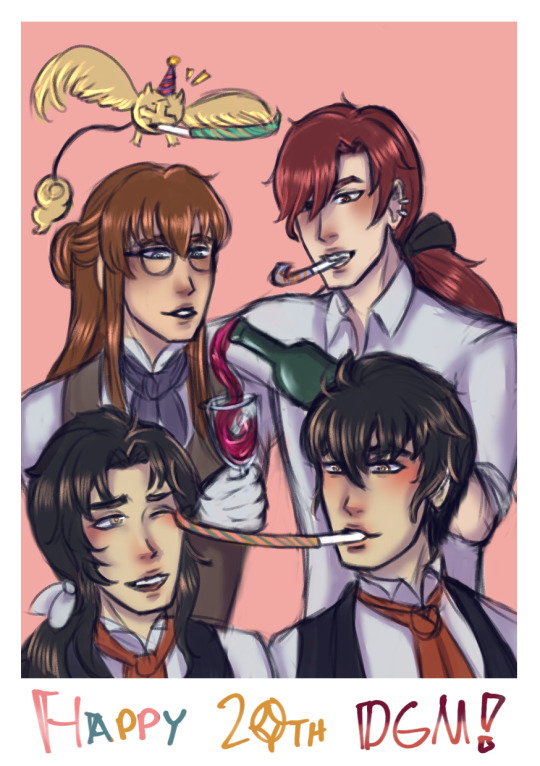
Party Doodle || A Celebration from 35 Years Ago
featuring from bottom left, Mana D. Campbell, Nea D. Campbell, ???, Cross Marian, and Timcampy.
✦ I originally made this celebration doodle with the intention of just drawing Nea, ???, and Timcampy. But upon popular demand and the power of friendship (shoutout to Hana Hazel, Kanin, and Sabhamun), I ended up adding Cross Marian and Mana! And honestly, the additions were a great idea and really make the piece feel more lively and fun! (Also we need more Campbell brothers content damn it. I wanna see them happy!)
✦ Also, if any of your are up-to-date at this point, you know Chapter 251 coming out shook so many things including this piece that was already done when it released. But! I think it's fun to keep it as is as a relic of the pre-251 era. (Who knows? Maybe I'll make a fixed version!)
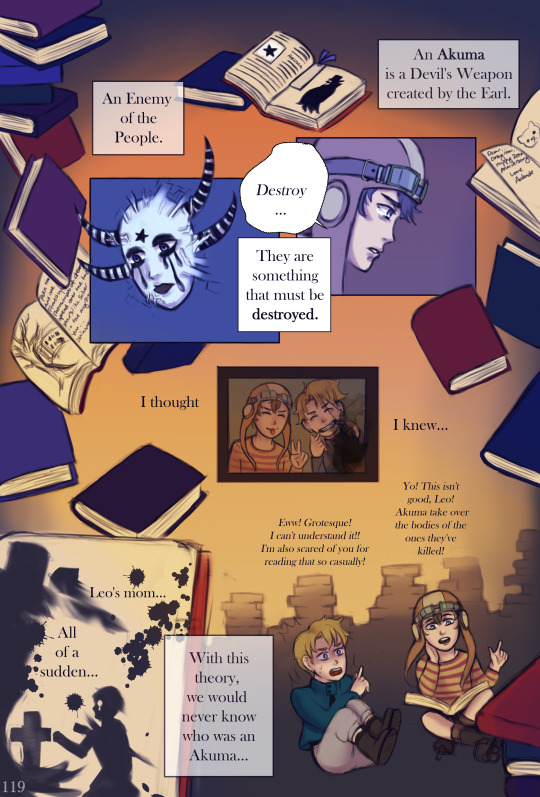
Redraw Project Page 01 || Chapter 04. Page 119.
✦ The first redraw page I received for assignment! I ended up liking the page, because it felt to me an integral establishing page for the series' themes. I may have gotten a little overboard with how I wanted to interpret the page, but I thought originally I would not be doing a second page and thus, wanted to put a lot of effort.
In D. Gray-man, Akuma are created when a person makes a deal with the Millennium Earl. More often than not, the person has no idea what this deal entails, only that they can bring their loved one back from the dead if they agree to it. But what happens when the person is aware or knows not to accept the Earl's deal?
And we receive a heart-wrenching, but understandable answer. To have the knowledge of the Earl's tricks does not automatically save a person. The Earl preys on the vulnerable. He appears and makes his offer to those in the deepest pits of despair and grief. That is how he got Leo. He was just a kid who lost his mother. He may have known more about the Earl and Akuma, because of his friendship with Jean, but when you are grieving kid-- what do you do when someone promises you they'll bring back your mother who was taken from you so suddenly? It is difficult to say no.
✦ The books that frame the piece are meant to convey this emphasis of knowledge and study-- the days Jean and Leo spent reading through Jean's father's books and notes about the Earl and Akuma with intention to patrol their town and keep people safe. Ultimately, a book page is the last panel, showing a representation of Leo and the Earl at a grave as Leo becomes an example of a person who takes the Earl's deal and whose body is taken by an Akuma.
✦ The blue tones of Jean and the Akuma were on purpose made to contrast the warmer tones of Jean and Leo's days together.
✦ It was crazy getting to draw an Akuma's face. It was a challenge to try and draw kids, but I ended getting through it pretty well.
✦ There are a few silly easter eggs in the open books. I put a small anniversary message in one. And in the other, I tried to sketch Cornelia and the Campbell Estate with the lyrics of the 14th's song. A nod to some content in the later parts of the series.

Redraw Project Page 02 || Chapter 01. Page 38.
✦ Originally, the plan was I only would do 1 redraw page and 1 doodle, but we needed fill-ins and I took a shot at it!
✦ When I found out it was a page from Chapter 1, I was ecstatic! I had originally wanted to do one from the chapter, but they were high in demand which was more than understandable.
✦ Unlike my first redraw page, I decided to be a little more simplistic with the layout. This layout is not too far off from that of the Katsura Hoshino's, but I made a few changes such as certain angles, drawing characters closer to emphasize faces.
✦ I am not the strongest with backgrounds and drawing buildings, but I ended up enjoying the challenge of it all. Thankfully, a lot of other artists in the project tackled the building and referenced the original page, the pages and sketches of the building or interior by other project artists, and the anime to ready myself to tackle it!
✦ The spirals of the Akuma bullet gave me trouble at first, but then I ended up enjoying it as I figured it out.
✦ This page was overall a big joy to play with as it challenged me with backgrounds, certain effects, and word bubbles.
And with that, this concludes the tour of my work on the D. Gray-man 20th Anniversary Zine. I have so much to say about this series and what it means to me, but I will try not to make this post horridly longer.
D. Gray-man is the series that made me fall in love with storytelling and art. It showed me something that filled an emptiness I felt. It gave me joy and company at a time where I felt unsure who I was and felt like an outcast. My resolution after this project is to continuously grow better at my stories and art. I hope to make something as meaningful to myself and others as D. Gray-man is.
Happy 20th Anniversary D. Gray-man! I hope and pray for more wonderful chapters and for there to be a lovely conclusion someday. For now, let us keep walking together!
#dgm20thfanproject#d.gray man#d. gray-man#dgm#d. gray man#d gray man#redraw project#redraw#nea d campbell#cross marian#mana d campbell#nea#mana#allen walker#dgm allen#aubadeatelier art#aubadeatelier oc#aubadeempress oc#aubadeempress art
30 notes
·
View notes
Text
Miraculous is an old cartoon, And I mean really old, so it's no surprise that through the years of development, the creators removed a lot of stuff from it. But one thing that I will never understand why they removed was the powers outside of cataclysm and lucky charm.
There were lots of ideas for superpowers (mostly for ladybug) and you can clearly see that the team was trying their best to make the powers
a) match the animal
b) match the concept of the miraculous.
c) not be too overpowered
Well not be too overpowered if we exclude the sword, no, really who gave the Idea of ladybug having a sword and Grenades?

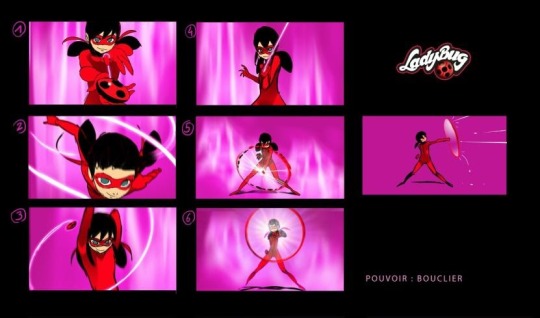
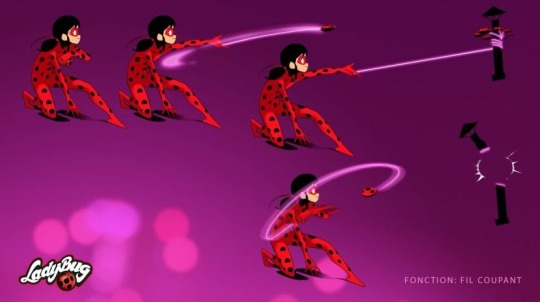
The powers of a superhero can show much more than just a pretty light show, it can also show a bit of their personalities.
batman has lots of gadgets instead of powers, showing he has to be smart enough to know how to use them, and they are all black, the color of bats and grief.
Spiderman is depicted as a teen/young adult most of the time, and his design alone shows that, he also has webs which he made himself, showing he isn't just a lucky guy who got powers one day, he is one of the best of his class.
Powers match the heroes personality, which is what I think the show was trying to do first.
Marinette/Marineta/Bridgette was creative and a fast thinker, with a soft side, Who was also very Clumsy and unlucky.
And as such she becomes ladybug, the hero of good luck, as the show has this thing of Opposites attract each other, if she's unlucky, her superhero contrapart is lucky, and also shows to the viewer why she would like to be ladybug.
She can use her yoyo (which was a purse before but let's just call it yoyo) in other ways that isn't just throw it at the enemy
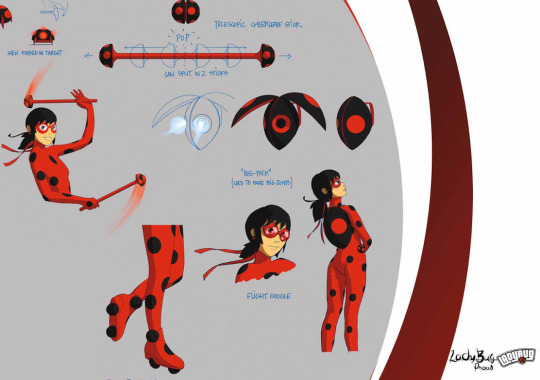
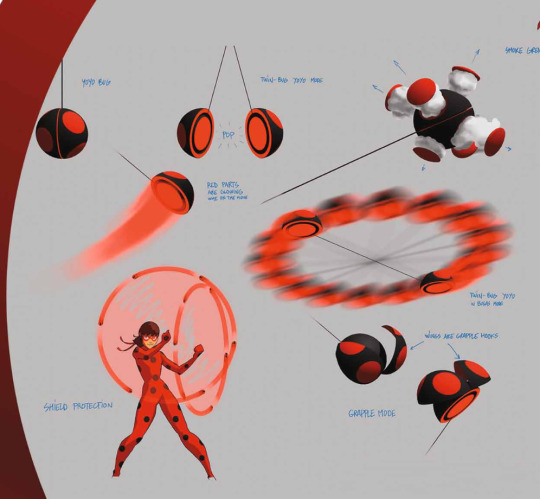
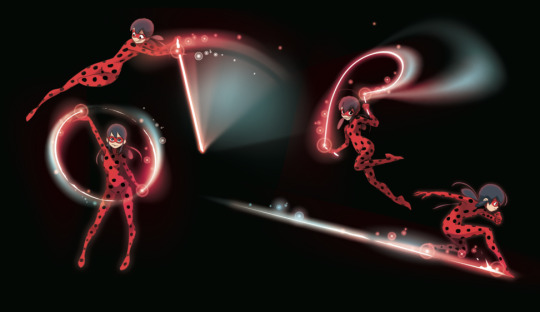
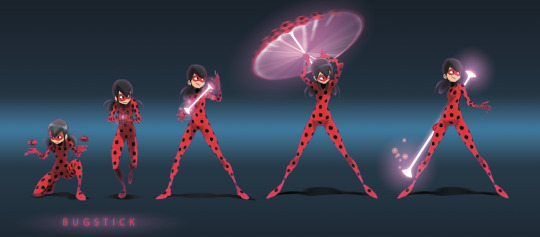
She could spin it and use it as a shield, open it, make a staff, heck at some point she even had a jumping rope.
And it also showed more of her soft side with things like: the yoyo could become a secret diary.
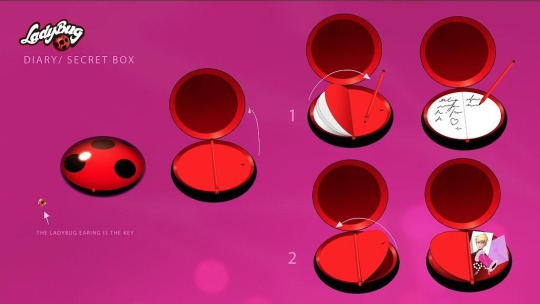
Not only did it make the battles more interesting but it showed her problem solving skills better than: yoyo gives her a magic object, she has to find out what to do with it.
I'm not saying that we should just put all these old powers onto the heroes, (some like making a staff, hypnosis or fucking grenades are too overpowered) but some powers like, ladybug being able to fly, or chat noir and his black storm thing could make the battles much much better, and I don't understand why the creators didn't roll with it.
Was it cause having too many powers would make the kids not be able to remember them all? Naruto is here to prove that this is completely false
Was it cause the show couldn't show all this cool powers in 20 minutes per episode? Again, Naruto, avatar, and many other shows also have 20 minutes but we're able to put lots of unique powers, and it isn't like miraculous didn't have that many episodes to show off these powers like the owl house for example.
Was it because the creators didn't wanna spend that much money having to animate cool shots? Well now that I think about it.. probably, it seems very in caracter for them to do that.
And now instead of cool anime battles, where the characters get new powers as they grow on the story, we get magic cheese/macaroons which also affect chat noir, so ladybug being able to fly isn't that unique anymore, and we got the characters in season five get a little help from the script which made them have infinite cataclysm/lucky charm because the writers want to convince us that they changed throughout the show.
And that's why I rather read archive of our own, as literal teenagers can do a better job that grown ass adults.
But that's all I wanted to say, thanks for reading this until the end, imma read mlb pv in archive of our own, byeeeee
#miraculous ladybug#miraculous#mlb#ml#miraculous salt#mlb salt#miraculous pv#mlb sucks#miraculous ladybug salt#ml salt#mlb pv#ml pv#ladybug pv#miraculous ladybug pv
23 notes
·
View notes